ISSUE 91.5





ISSUE 91.5




A Huge Thank you To Kansas, Elizabeth, Dalestair and Charlotte For making Queerdit so sLAY.
Guest Editors
Contributors and Sub-Editors
Asirah Abdul Kadir
Lily Baxter
Charlotte Whincup
Editors
Kathers Anderson
Louise Jackson
Sebastian Andrew
Sienna Sulicich
Cover Art
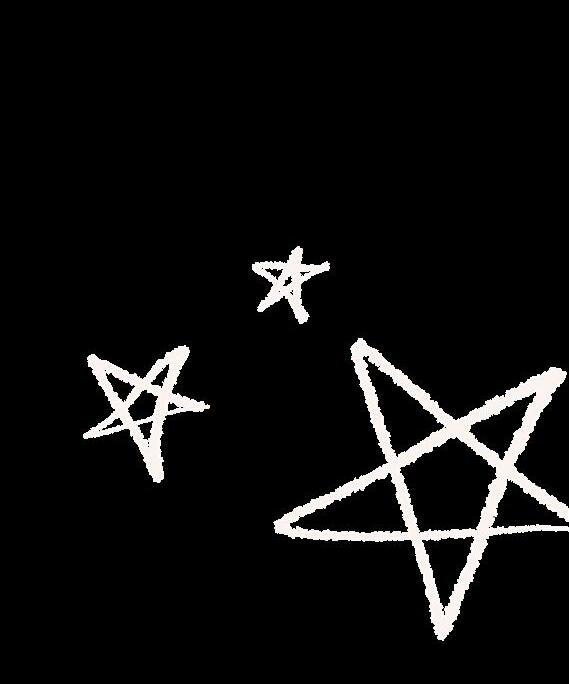
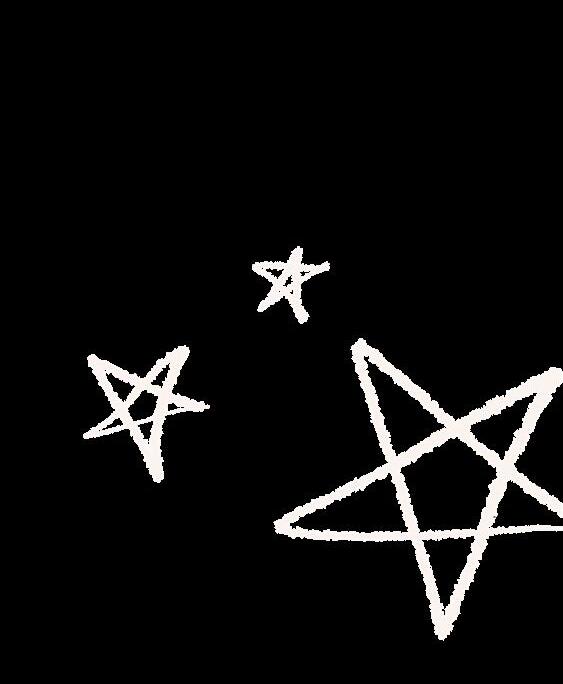
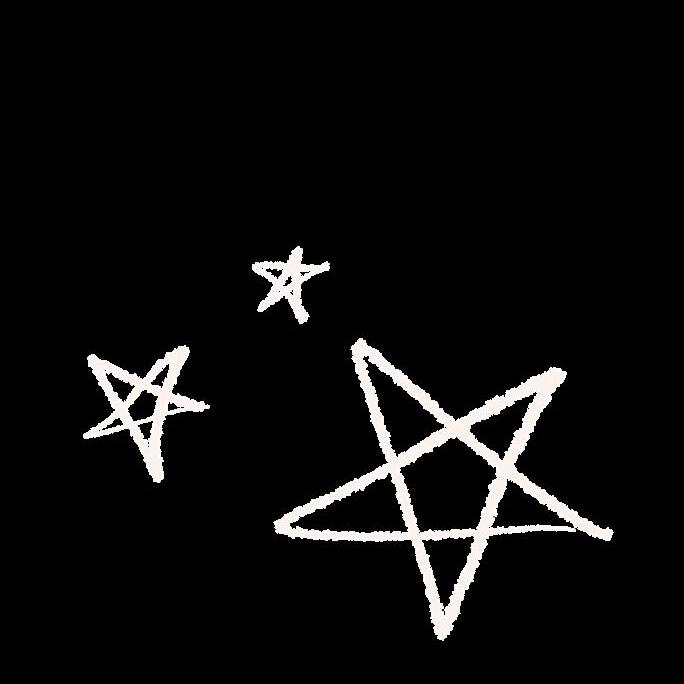
SIENNA SULICICH
Graphic Design
Sienna Sulicich
Dalestair kidd
Lily Baxter
Art
Sienna Sulicich
Dalestair Kidd
Eliza LE MIRE www.elizalemire.com.au, elizamireart
Harper Forsythe
Arantza Garcia
Peter Jackson
Emily Kelsall
Loki Maelorin
Talara McHugh
Venetia Rigoni
Devanshi Shah
Patrick Smith
Ellie Venning
Skye Xie
Georgia Firth
We want to acknowledge that the University of Adelaide’s On Dit is written and created upon Kaurna land. The Kaurna People are the traditional custodians of the Greater Adelaide Plains and their culture, knowledge, and spiritual connections continue to run deeply within this Country. We acknowledge that the University of Adelaide is a place of learning attended by First Nations People from around the continent and, like Kaurna, their land and sovereignty was never ceded. We pay our deepest respects to the Elders of the past, present, and emerging.
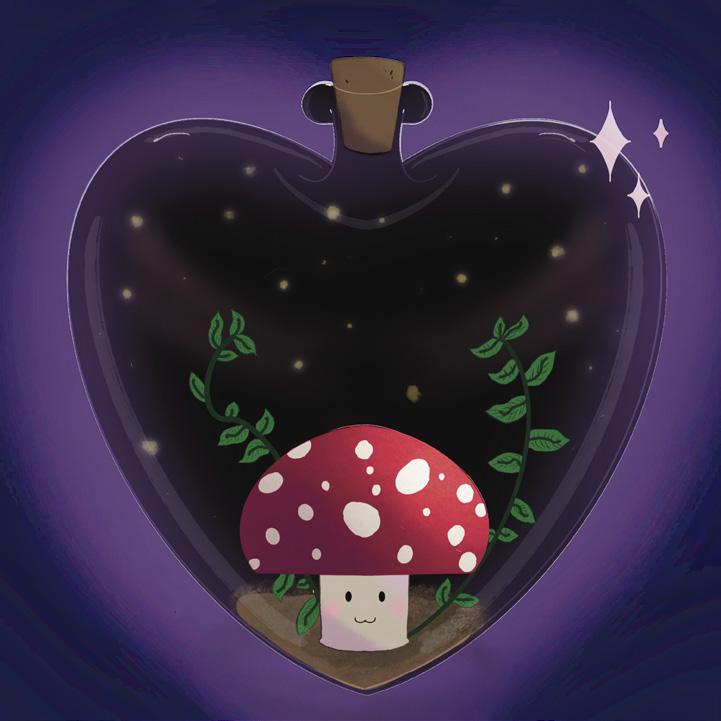
#1. we fell in love in october - girl in red
#2. John, I’m Only Dancing - David Bowie
#3. Poker Face - Lady Gaga
#4. Girls Like Girls - Hayley Kiyoko

#5. Rebel Rebel - David Bowie
#6. Make Me Feel - Janelle Monáe
#7. Crush Culture - Conan Gray
#8. Let It Go - From ‘Frozen’ - Idina Menzel
#9. Girls & Boys - Blur
#10. Sofia - Clairo
#11. I’m Coming Out - Diana Ross
#12. Lola - The Kinks



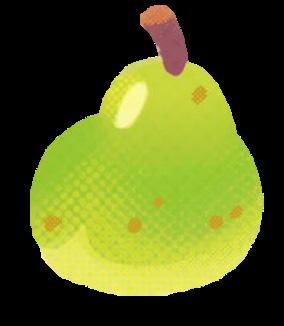

















While you’re all no doubt in the throes of SWOTVAC and exam season, we appreciate everyone who’s taken the time to pick up a copy of this very special Queer edition of On Dit! This issue is dedicated to highlighting queer issues and uplifting queer voices, in hopes of creating a cross section of our wonderfully diverse LGBTQIA+ community.
The world is messier than ever, especially for our community, and while we don’t want to ignore all the horrible things that are happening, we also don’t want to ignore the resilience and the beautiful things that our community has created. Most of us are uncomfortably aware of the threats that we face, so it’s important to remember the strength we have in solidarity. We’ve selected pieces which reflect the diversity of experiences that are held within the community, from information about what to expect from hormonal therapy, to the importance of intra community support.
While it’s currently Pride month in the United States, remember that we celebrate Pride in Adelaide during November. So on top of reading the great pieces in this issue, if you want to connect with the LGBTQIA+ community be sure to keep your eyes out for events and get-togethers that’ll be ramping up during the year. We hope to see you all out there in the wild!
This issue wouldn’t be possible without the amazing contributions we received. All of us were overjoyed at the quality of the submissions we received and the array of topics covered. Thank you to everyone who submitted an article, to those who sat for interviews, and to the regular editor team for supporting us guest editors on this journey. Finally a big thank you, dear reader, for picking up this issue and persuing its contents. We hope you enjoy reading it as much as we enjoyed creating it.
Dalestair, Charlotte, Kansas, and Liz QueerDit guest editorsHey there, friendo! I’m Dalestair, a Bachelor of Arts (History/English) graduate and current third year Media and Marketing student! When I’m not at uni, I’m a content creator sharing my love of all things queer and spooky on Instagram and Twitch.

I’m a long time reader, first time contributor for On Dit. I figured it was time to get involved as I reach towards the end of my second degree! I’m passionate about representation and visibility for diverse identities and I hope that our issue can showcase the various intersectionality of our experiences. I want to extend a big thank you to everyone who contributed to this issue - it’s been an honour to read your stories and to help share them with the student body. Keep shining, you fabulous and wonderful humans!
Hi, I’m Charlotte! I’m a third year Media and Arts student (majoring in English) and (somewhat) proud law school dropout, trying to claw my way into the cut-throat world of journalism. Ideally, I’d like to work as a reporter specialising in crime & courts and/or social issues, or as an arts critic. When I’m not studying (more like procrastinating studying), you’ll find me devouring fanfic, listening to 70s and 80s music, and accumulating quite the ‘to-read’ and ‘to-watch’ list.

You may recognise me from my role as a columnist and sub-editor for On Dit 2023 (yes, ‘tis I who wrote that Nepo Babies opinion piece). I’ve been loving my time working for the mag so much that I’ve taken up the mantle as one of four fabulous Guest Editors for this very special Queer issue!
Funnily enough, Queer Dit was my first foray into student media and magazine writing, having been an anonymous contributor last year, so it seems only apt that I have come full circle in an editorial position. My hope for this issue is that the queer student body feels heard and represented, especially those whose identities fall under the ‘+’ in the LGBTQ+ acronym. I think many of us often struggle with invisibility and not feeling ‘queer enough’ in our community (this gal being no exception), so it’s an honour for me to have this platform to affect change. Happy Pride everyone!
Howdy! I’m Kansas but I also go by Foxxglove (as well as a myriad of other nicknames). I hold a Bachelor of Arts majoring in history and am currently studying a Masters of Museum and Curatorial Studies. I am also in my third year as President of the Pride Club here at Adelaide Uni. You might remember me as a guest editor of Queer Dit back in 2020, sporting a self styled bowl-cut and using very different labels to what I do now. I am a proud lesbian, ace/aro, and self-described non-binary transsexual.
After spending as long at uni as I spent in high school, I still am deeply affected by the unique vibes of coming out as non-binary during the mid 2010s when ‘did you just assume my gender’ jokes were everyone’s go-to. This definitely still impacts my writing and my approaches to queer issues today. I’m massively into all things goth, punk, death, sex, and gender related. I’m a lover of queer theories but am currently trying to focus on queer realities.

Hey there! I’m Liz. I got my BSc in maths and physics, my BSc (Hons) in maths, and my MSc in maths from the University of Auckland. Now I’ve jumped the pond to do a PhD in maths here at the University of Adelaide! You might recognize me as a tutor for some of the second year applied maths courses last year, or as a tutor for the Maths Learning Center this year (I’m the one with the funny accent that’s almost South Australian). I also happen to be the Vice President of the Pride Club. Outside of uni I enjoy video games, Warhammer, and I’ve recently gotten into 3D printing.
I came out over a decade ago as an older teen, and I’ve had the terror experience of feeling the shifting attitudes towards our community during that time, which has definitely had an impact on me as a person. Although in the last few years I made the excellent decision to trade internet arguments for more meaningful advocacy, which is something I do not regret at all. What we have to say about ourselves is far more important than what other people have to say about us, so luckily this year we’ve got a jam packed Queer Dit filled with thoughts and stories from our community!




Picture this: I’m two wines deep at a Budget Night event when my friend leans in to tell me that he feels as though he gets labelled as a straight guy despite being very gay. This is a lot to digest but it raised an interesting question. What does it really mean to accept your sexuality as a part of your identity?
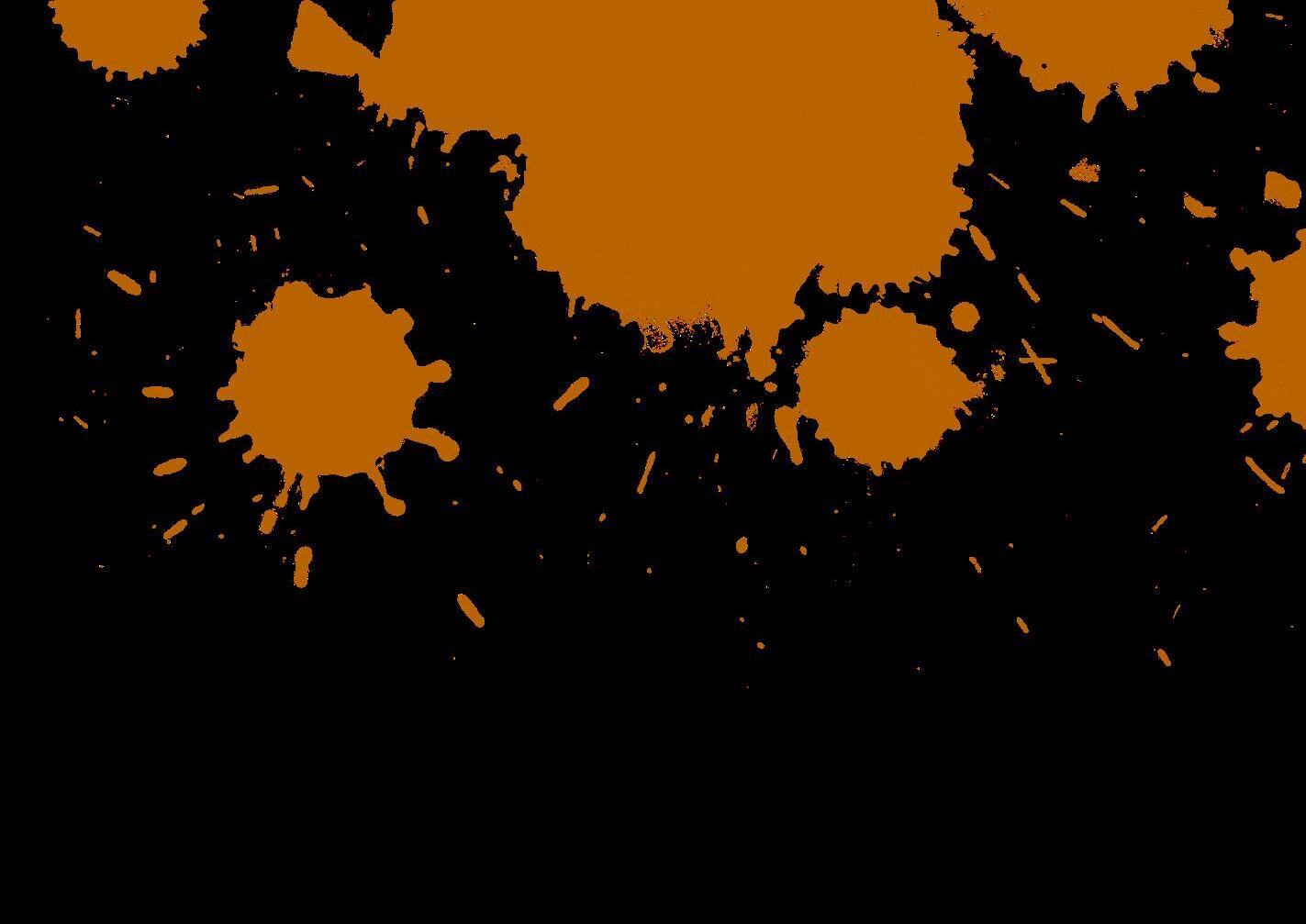
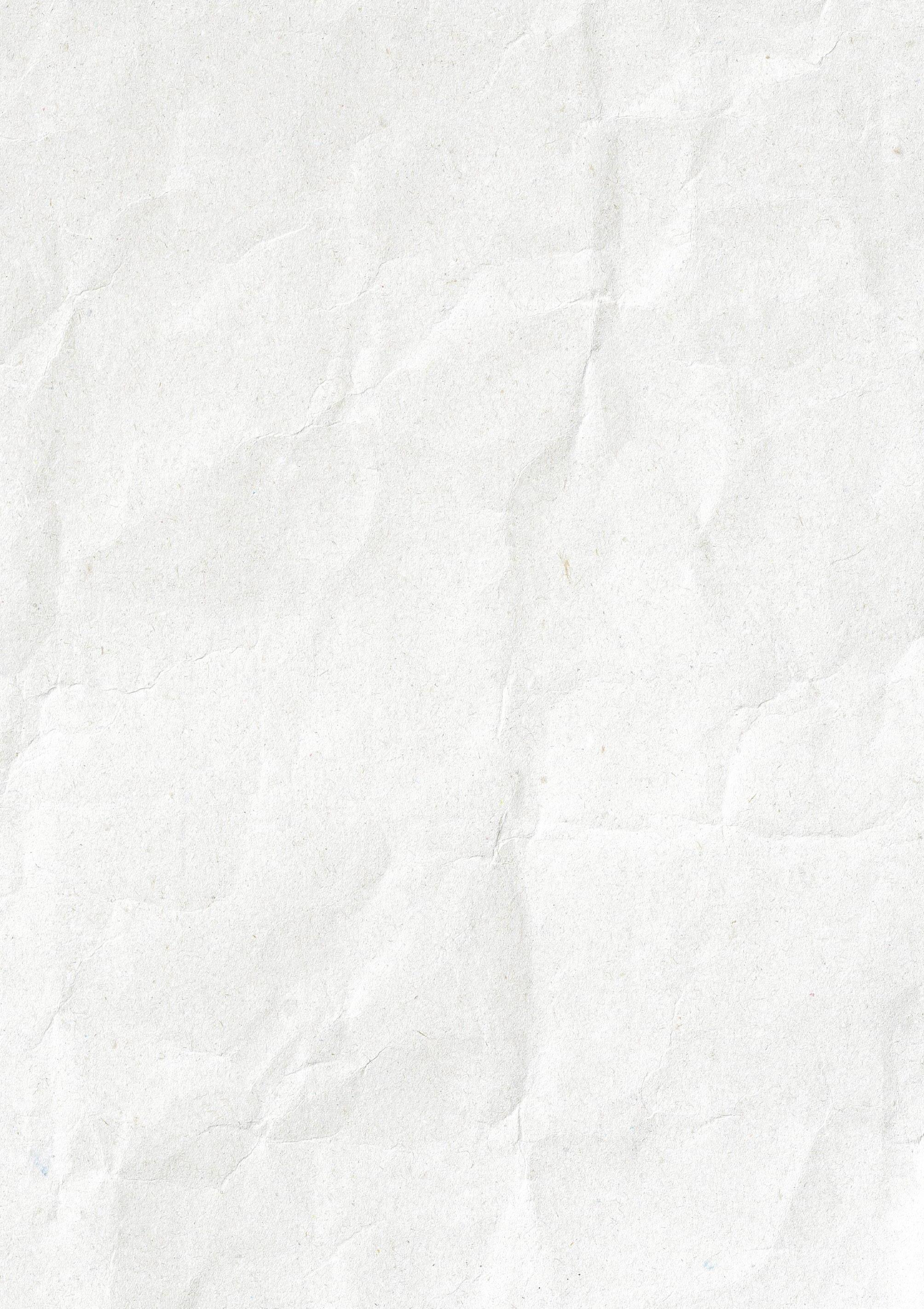
For context, I have short hair, tattoos, and an illustrious collection of Dickies. I am the poster girl for the butch lesbian community and it’s honestly frustrating. I’ve had people tell me that my voice is too high for my gay behaviour, so I should probably tone it down. I would never want to strip my femininity from my identity, but apparently this isn’t gay enough to meet the criteria for ‘queer club’ entry. My bad.
Compare this to my friend’s situation. He enjoys collared shirts, beer and R.M. Williams. He falls into the category of conservative straight-man dressing. It’s how he enjoys presenting as a gay man, and that’s his prerogative. But he struggles to be seen within our community because he doesn’t toe the party line of glitter and thongs. Unlike me, he’s told to tone it up or also be denied ‘queer club’ entry.
I believe we have a certain amount of control over how much we let sexuality affect our identity. When I came out at 16, I felt so tragically misunderstood by my parents and friends. I grew up in many traditionally bigoted farming communities who could probably count the gay people they’d met on their hands (including the estranged cousin we don’t talk about).
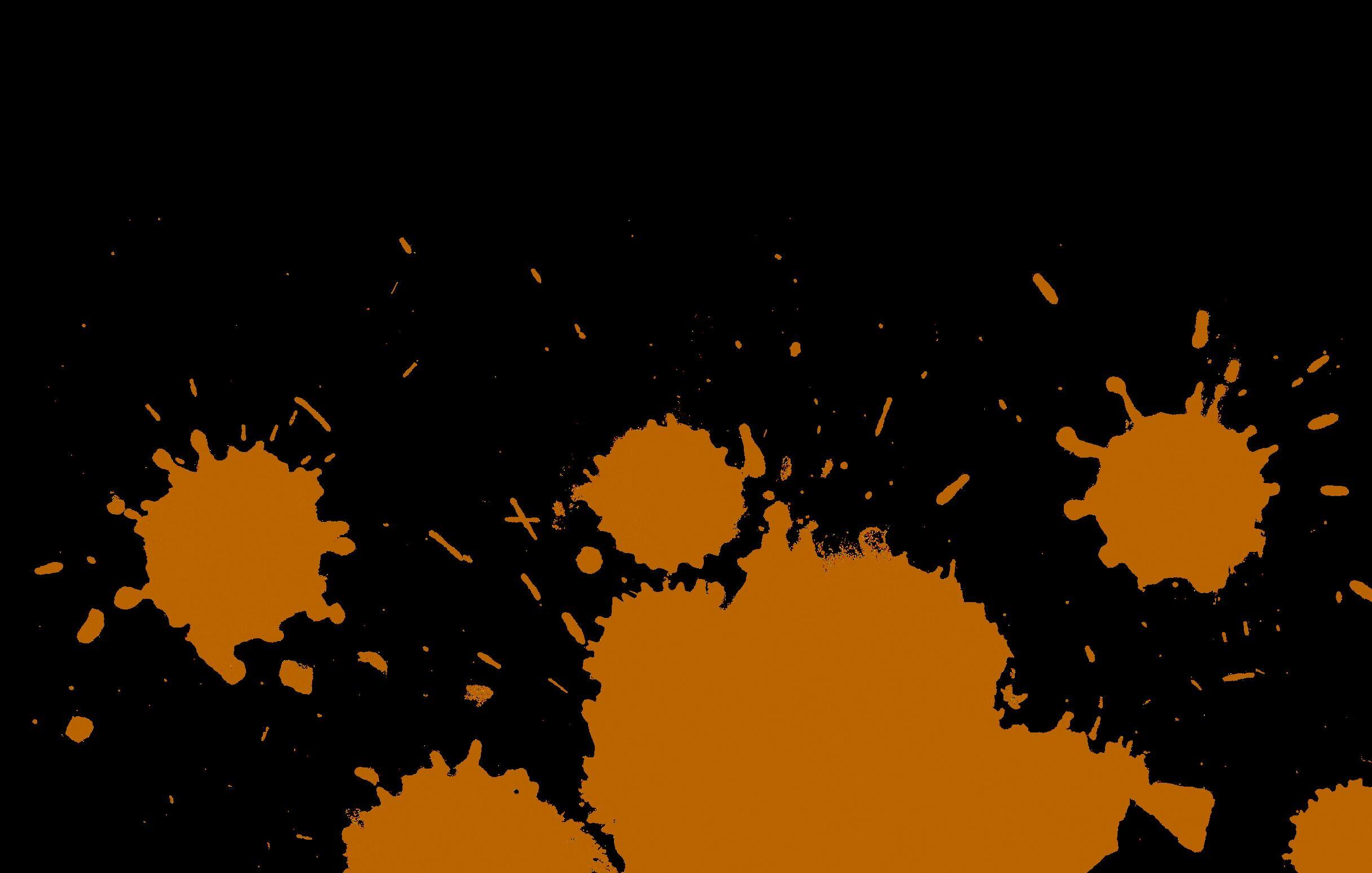
because it wasn’t my cup of tea (is it really anyone’s if we’re being truthful here?), but I wanted to feel that strong sense of alignment with a queer community that seemed so endearing and welcoming.
So I raise the question again, what does it really mean to accept your sexuality as a part of your identity? I don’t believe we’re in a position to dictate who is gay enough, or not gay enough, for our community. Our community is one of the most loving, but also one of the quickest to discard if we don’t fit a perceived image of ‘queer’.

You, an individual, must decide how you dress - that’s not up to the community. The dichotomy between toned-down dressers and those who dress-up is the definition of embracing one’s sexuality as a part of one’s identity. It’s how you choose to live your life - it’s free will, for fuck’s sake! And I think that’s beautiful.
 Dani Collier (she/her) SRC Queer Officer
Dani Collier (she/her) SRC Queer Officer
David
Black Dresses, Peaceful asHell(2020)

This is the quintessential queer album. Not gonna lie, as hardcore Bowie trash, this was a hard one for me: it was a toss-up between Ziggy and Aladdin Sane. However, the former reigned supreme on the merit of being his precursor era. I’m ashamed to say that I’d never listened to this album in all its glory until recently, but let me tell you — This. Is. A. Masterpiece. If you’ve yet to experience this glamorous, psychedelic, sexy AF rock opera, then you need to rectify that ASAP! With 11 tracks, this album tells the story of Bowie’s titular alter ego, an androgynous, bisexual alien rock star who is sent to Earth as its saviour before an impending apocalypse (detailed on opening song ‘Five Years’). Other noteworthy tracks include ‘Moonage Daydream’, ‘Starman’, and ‘Suffragette City’ - all deliciously queer in their own ways and absolute bops…wham bam thank you ma’am!
Okay, so I know I had to pick a Black Dresses album for this, because most transfems I know are extremely normal about this band. This recommendation does have to come with a disclaimer though, since I know that noise pop and experimental electronic music generally isn’t for everyone. However, if you feel like completely owning your ears, then give these guys a blast. They’re a transfem duo based in Toronto, Canada, who’ve been making music together since 2017. Out of all of their albums, this one is probably the best starter. It’s got noise, sure, but it’s also got catchy hooks and beats you can dance to. As for lyrical and thematic content, the band discusses climate anxiety, a yearning for friendship and connection, and a desire for (inner) peace, among other subjects. To me, this album definitely feels more hopeful and uplifting compared to the rest of their discography, but maybe that’s just me. My favourite tracks from the album are ‘DAMAGE SUPPRESSOR’, ‘MiRRORGiRL’, and ‘CREEP U’, so if you’re not sure about where to start, check those out!

Hey girls, gays, and theys, prepare to be serenaded by these queer albums, lovingly handpicked by your dedicated Guest Editors! Retreat from the pressures of cishetereopatriarchy and escape into these delightful aural utopias.
Anyone who knows me is going to be shocked that my pick isn’t a My Chemical Romance album, but I’ve got to shout-out a relative newcomer on the scene here. Scene Queen has been absolutely killing it on TikTok with her juxtaposition of 2000s bubblegum pop and metalcore. Bimbocore is a reclamation of femininity in masculine spaces, a collective anthem of being unashamedly yourself, and - let’s be perfectly honest here - a lot of bops about girl-on-girl love. There’s a bunch of pinkthemed tracks on these EPs, but if you’re not sure where to start try ‘Pink Panther’ - a very sexy song that will get stuck in your head.


SceneQueen,Bimbocore& BimbocoreVol.2(2022)
I’m gonna be real, I’m not sure how to explain this album without sounding insane. The Mechanisms are a steampunk band where each member portrays a fictionalised version of themselves. They are a band of immortal space pirates who spend their time singing about their run-ins with historical events, based on well-known myths and fairytales. In The Bifrost Incident, the story of Ragnarok is retold through the lens of a genderfucked, Lovecraftian cold case file. Nearly every character is trans, or otherwise queer, and the vocals never cease to hit me hard. Whether you’re looking for a heart-wrenching ballad about a trans lesbian’s identity crisis, a humorous interlude with some fourth wall breaking, or a hard rock chant summoning Yog-Sothoth, this high-concept album has it all. A good out of context track to get the feel for the album has gotta be ‘Ragnarok II: The Calling’, but if you want to know the story behind the story, check out their earlier albums, especially Once Upon a Time (In Space).
The Mechanisms, The BifrostIncident(2017)
We ask four UofA students the most pressing questions. If you want to be featured in another issue, email us!
1. I’m not putting on the accent. Yes, I know I don’t sound like my parents. No, they don’t know where it comes from either. Yes, you did mention you don’t like accent comedy in improv, but I just speak like this. Yes, I know you can’t retroactively give me first place in the Eisteddfod.
2. Enby. If you call me an enby I become the legal owner of everything you’re carrying and that includes your ID.

3. I would like to see this government make a single major choice that justifies them calling themselves a Labour party; they can start by nationalising Cafe de Vili’s.
1. 1. I think the most awkward thing I had to explain was early in my social transition when I first started using he/him pronouns as well as they/them - people automatically assumed I was a trans man and it felt really awkward trying to explain that while I do use he/him pronouns, I don’t identify as a trans man.

2. I think that anything like ‘theydies and gentlethems’ should be retired - it feels like people are trying to find a way to still put non-binary people into gendered boxes. It has the same vibes as ‘are you a girl non-binary or a boy non-binary?’ The terms completely ignore the expansiveness of non-binary identities and tend to invalidate people’s experiences.
3. I want labor to make it a lot easier to get a legal name change. I also want them to get a lot better about environmental issues and actually take a stand on closing coal mines, integrating proper Indigenous agriculture and aquaculture techniques, and ensuring that the voice to parliament isn’t just performative allyship and is instead the first step to a treaty and decolonisation (which I would also like them to commit to).
Rough Diamond.they/them1. What’s the most awkward thing you’ve had to explain to someone?
2. Which bit of queer slang do you think should be retired?
3. It’s been a year since Labour was elected. What do you want to see out of this government before the next election?
1. That being on the asexual spectrum is enough to be a part of the LGBTQIA community.

2. As someone who has recently become part of the LGBT community, I don’t have strong personal feelings regarding which slang terms the community should retire.
3. I want to see them do some meaningful action addressing the cost of living and housing crises. Solaris.they/them
1. I’ve had to explain to someone what OBA is after comparing it to the poet, king, and soldier quiz (a quiz based on the song of the same title that became popular on TikTok).
2. Bussy needs to retire, nothing shady it’s just overtaken my whole vocabulary.
3. As a queer Aboriginal person I have hardly any expectation of the current government. Only the hope they are able to remedy or find a solution to the current housing crisis, increase wages to an actual liveable standard, further create systems and policies that can help Aboriginal and Torres Strait Islander have an equal footing with the rest of the Australian population, and finally, hopefully for Australia Day to be changed to a date that me, my mob and all of the Aboriginal and Torres Strait Islander population no longer have to endure the painful reminder that date upholds.

Fearmongering around ‘drag storytime’ events held at public libraries in the USA have recently been gaining traction in Australia. How do you think Australian local councils should respond to threats concerning drag-related events?
Councils and the community need to take a stand to ensure these events can continue to go ahead. Activists should organise to show solidarity with the LGBTIQ+ community by defending these events from bigots. Cancelling these events gives the far-right a massive victory, only giving them confidence to continue opposing these events.

Australian councils are unequipped to combat this violent extremism that has been growing over the last decade, and a state-level response should be made. If state governments pass anti-vilification laws that protect LGBTQIA+ people and grant councils the required resources, then councils could raise awareness while minimising transphobic hate.
The Liberal Party that was founded on the core belief of the liberty of the individualif an individual, an adult wishes to express themselves in the form of drag performance then they should be encouraged to do so. The Liberal Party does not have a formal policy on ‘drag storytime’. Local councils should be entitled to hold these events with parents deciding what is appropriate for children. The Liberal Party provides a conscious vote on these issues, David Pisoni, state MP for Unley has indicated his support for allowing drag story times if appropriate.
While cancelling protects people at individual events, calling off drag shows emboldens far-right groups to pick more targets. We need laws protecting LGBTQ+ people from *vilification*, which covers inciting hatred in the public sphere whether online or on the steps of parliament. Since, currently, local councils can only try to track down anonymous hackers.
Many trans, intersex and gender diverse people struggle to access appropriate care due to gendered language in parliamentary and insurance legislation (eg. A trans man may not be eligible for uterus-related care due it being designated a ‘women’s issue’). What does your party believe to be the best direction for changes to take place, or not take place?
All legal and bureaucratic barriers to trans, intersex and gender diverse people accessing whatever healthcare they need must be overturned. But we also need to overcome the barriers put up by a semi-private healthcare system and a lack of funding. Real inclusivity needs a free and fully funded public healthcare system.

Trans, intersex and gender diverse must have access to the care they deserve. Abolishing gendered language as seen in SA and in the ACT creates some flexibility in legislation to account for LGBTQI+ folks. However, many other discriminatory barriers and a lack of resources make it harder for them to survive.
While the Liberal Party does not have any clear federal policy about how we ought to best deal with gender specific legislation, it is important that legislation fit the current requirements. Legislation should not exclude people who have the issues, the legislation will need to allow for someone who was born female at birth, to transition and still be able to get the adequate health care required for the organs that the person received at birth. Legislation should be modified to be equipped with this.
No one is worse off for using gender inclusive language. While we have no time whatsoever for TERFism, we do see a need for tailored policy responses for cis, trans, non-binary etc. folks. Specificity and nuance is needed in healthcare and sometimes it takes a while to settle on language that’s both inclusive and usable.
Openly gay MP Alex Greenwich has announced plans to seek legal consequences for a homophobic tweet posted by MP Mark Latham. When it comes to social media, how can government’s best take action against digital hate crimes?
Mark Latham’s comments were disgusting; even most right-wingers felt compelled to condemn them shows the advances made by LGBTIQ+ people in recent decades. This wasn’t done through appealing to the government to ban hate speech, but through using our own free speech to confront bigoted ideas in mass and popular campaigns - an approach we need to revive today.
When unchecked, online hate speech causes violent hate crimes that target our most vulnerable. We must hold those who speak hate, and those who profit from it accountable. By imposing harsh penalties on social media companies that allow hate to fester will help create safer and more welcoming Australia.

A hate crime is a hate crime, no matter the location. As seen online since the takeover of Twitter by Elon Musk, antisemitic, homophobic, transphobic and racist activity has skyrocketed on twitter, the platform in which former Labor leader Mark Latham MP made his absolutely disgusting comments. The current legislation is not equipped for an overly digitised world. The federal parliament should update legislation to ensure all digital hate crimes can be prosecuted.
First, political parties must adopt and enforce codes of conduct that prohibit the use of hate speech. When politicians use hate speech, IRL political violence increases. Second, the government should fine social media companies that fail to remove abusive content. In Australia, regulation of online speech is in its infancy. At the same time, forcing large tech companies to arbit hateful content risks collateral damage to free speech.


Content Warning: Contains strong language, nudity, blood, drug references, smoking, content about suicide and graphic depictions of violence, self-harm, and sexual violence. Readers are also advised that this review contains discussions of chronic pain and ableism.
Received with a standing ovation, director Ivo van Hove’s A Little Life (adapted by Koen Tachelet from Hanya Yanagihara’s critically acclaimed 2015 novel) is a horrifying, yet spellbinding exploration of a trauma-burdened psyche that transcends time, culture, and social categories.

At a runtime of 4 hours and delivered entirely in Dutch (with English surtitles courtesy of Kitty Pouwels and Josephine Ruitenberg), the production centres around Jude (portrayed by Ramsey Nasr in a heart-rending performance), a successful lawyer with a mysterious and demon-plagued past, across decades of his life, who represents the permanent, cyclical scarring impact of childhood sexual abuse. This show is not for the faint-hearted and those with lived experience of its thematic content. Audience members should heed graphic depictions of sexual violence, self-harm, and nudity, alongside topics of suicide, chronic pain, and ableism.
Nevertheless, the narrative is uplifted by the all-male ‘found family’ who rally behind Jude in his darkest periods. There are his friends: Malcolm (Edwin Jonker), an architect, JB (played by assistant director Daniël ‘T Hoen, seamlessly subbing for Majd Mardo due to illness), an artist, and Willem (Maarten Heijmans), an actor; as well as Andy (Bart Slegers), his doctor, and Harold (Steven Van Watermeulen), his adoptive father and former professor.
The action takes place on a traverse stage, creating an intimate setting for us to bear witness to Jude’s trauma and short-lived joy which makes us feel as though we are inside his headspace. The set pieces (designed by scenographer Jan Versweyveld and assistant Bart Van Merode) function as the protagonist’s apartment and the living spaces of his four friends with one side of the stage containing a kitchen and a medical practice alongside one another. The naturalist style - everything you see, hear, and smell feels realistic - lends itself to the raw and highly distressing emotions represented throughout. Most significantly, a bathroom sink merits central positioning as the site where Jude returns time and time again to engage in self-harm, highlighting that no matter how successful his career is and how sizeable his support network is, these painful memories are always at the forefront of his mind. The blood stains on the marble floors are symbolic of the deep-seated, chronic impact of childhood sexual abuse: once stained they can never be removed.
The most memorable aspect of the production was the portrayal of positive male relationships in opposition to the toxic masculinity perpetrated by Brother Luke, Caleb, and Dr. Traylor (all portrayed by Hans Kesting), alongside the naturalisation of homosexual love as seen in the heart-warming romantic relationship that blossoms between Jude and Willem. It is extremely rare to see a queer relationship depicted in media that is not the source of tragedy - the characters could have just as easily been straight.

Additionally, its connection to broader social themes struck on a personal level, chiefly ableism and lived experience of chronic pain and disability which are also sorely lacking in media. Throughout the play, Jude resists his increasing dependence on others and assistive technology, as he believes that succumbing to his spinal injuries serves as a win for Dr. Traylor; a semblance of maintaining control over his body and emotions post-trauma.
Although the depictions of abuse and trauma feel gratuitous at times, A Little Life is a theatrical triumph that was undoubtedly a highlight of this year’s Adelaide Festival. Directors and playwrights can take many notes from this production on how to effectively portray the intersectionality between the queer and disabled experience.
A quickfire way to find a fellow member of the LGBTQ+ community is to identify the sustainably made tote bags adorned with catchy politically relevant phrases and semi-ironic doodles, or to locate the reusable water bottles embellished with a variety of biodegradable stickers that are usually accompanied with some ethically sourced snacks. This is to say, that wherever there is a group of people caring about the environment, there will ultimately be a high proportion of queer-identifying people. As ecology and social justice are intimately tied together, queer people have always been advocates for the environment.

If you’ve ever done a humanities course or engaged in any level of online discourse, you’re probably aware that capitalism is bad for all of us, and pretty atrocious for the environment as well (picture the mounds of poor-quality fast fashion in landfill). You may also be aware of the Gray-Green divide. In this divide, we see richer neighbourhoods being surrounded with lush green parks and well-manicured footpaths, whilst the many shades of concrete grey, forgotten sidewalks, neglected roads, and unmaintained dirt patches, are all reserved for lower income neighbourhoods. The Gray-Green Divide is one of the main reasons that the movement of Guerrilla Gardening came into existence.



The popularity of Guerrilla Gardening rises during times of strife, when landowners refuse to see land as a community resource, and instead as a commodity to be neglected. The Guerrilla Gardening movement is largely a reaction to community land theft and misuse. The term comes from the Green Guerrillas of the 1970’s, but the concept of gardening on land without a legal right to do so has quite a longstanding history. The earliest known case of Guerrilla Gardening can be traced back to enslaved African farmers, who braided seeds into their hair to retain bodily autonomy, for food security, and to maintain a connection to the homes they were torn from by European colonial forces. The secret gardens of these enslaved farmers grew in abundance on the land of their oppressors’ (land that itself had been violently stolen from Indigenous communities), and in stark contrast to their forced work, the gardens showcased resistance, survival, and sovereignty.




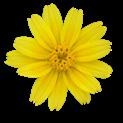

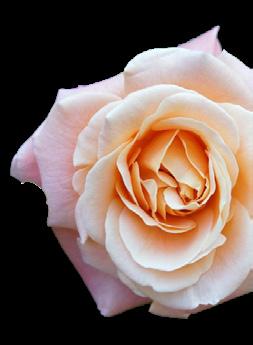
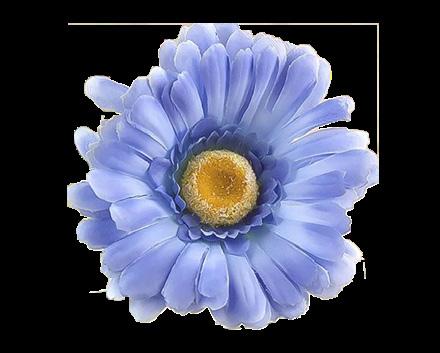




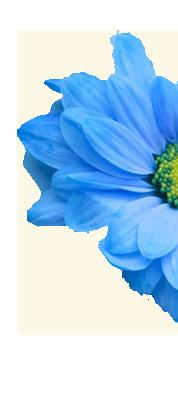

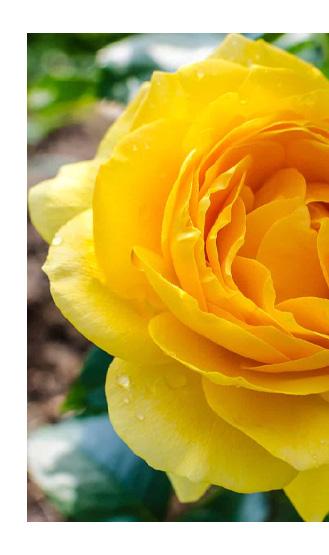
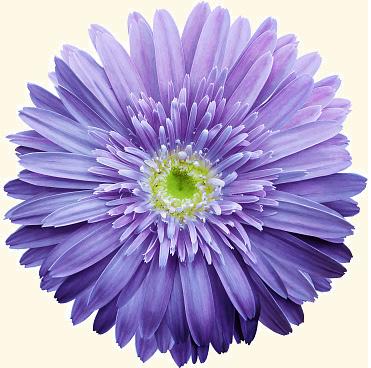






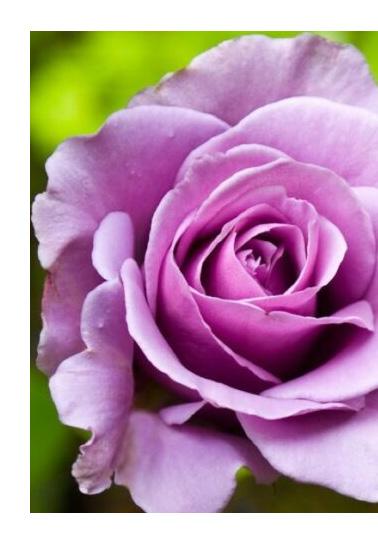


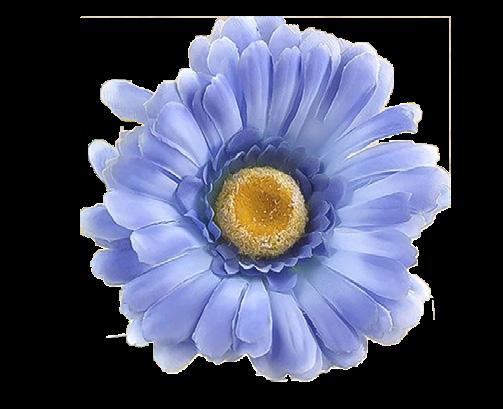
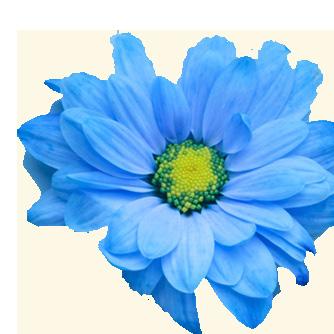


Guerrilla Gardening emerged as a way for people to make use of neglected public and private space for the benefit of the surrounding community. This can be done in multiple ways, including beautifying the urban environment with pretty flowers and native vegetation or by cultivating the space as a community garden. Thing is, the terms ‘trespassing’ or ‘breaking and entering’ are quite applicable to Guerrilla Gardening, as in most cases the land belongs to either private individuals, organisations, or government.

The reclamation of space and challenging of social norms and power structures through Guerrilla Gardening is reminiscent of an experience queer people are all too familiar with. Queerness has always searched to challenge and redefine traditional notions of gender and sexuality, thereby reclaiming space for marginalised identities. The connection between marginalised identities and Guerrilla Gardening is not one that is new, and queer people have long been part of this radical challenge to the conventional use of public space. One such person, artist Paul Harfleet, has been planting a solitary flower at the nearest available soil to where homophobic abuse has occurred. Named the Pansy Project, Harfleet photographs each planted pansy and names it after whatever abusive phrase was thrown. Ultimately, it’s this spirit of resistance against rigid norms and formative power structures, that made me think about our long history of resistance as a community.
Guerrilla Gardening can be viewed as a form of rebellion, born out of the powerlessness that many of us living in lower income neighbourhoods are forced to endure when it comes to our surroundings. The creation of green space within our grey filled neighbourhoods benefits us by creating a more connected and ecologically diverse community, and the making of a community garden helps feed our neighbours in times of need. In the end, Guerrilla Gardening is not the most effective way to get involved within conservation, but it is another way to take care of our community when organisations and governments fail us.
Now, if you don’t have the greenest thumb or access to native seeds, there are many more effective ways to get into conservation and environmental rehabilitation. Getting in touch with local non-profits that are already doing conservation work and offering up your time or money is a good place to start. Some of our top personal sustainability picks include the Forktree Project, Greening Australia & Landcare, plus the great work of community & Lions clubs in cleaning their local areas. You can also reach out to us at the Adelaide Sustainability Association as we start to organise volunteering days with local revegetation and sustainability organisations!
The Adelaide Sustainability Association (ASA) at the University of Adelaide are a social group interested in learning more about sustainability and getting to know like-minded students. You can learn more about the ASA & chat about our Sustainabili-dit articles via our social media channels: @Adelaide Sustainability Association on Facebook @instainable on Instagram.
References


Corbane, C., Martino, P., Panagiotis, P., Aneta, F.J., Michele, M., Sergio, F., Marcello, S., Daniele, E., Gustavo, N. & Thomas, K. 2020, “The grey-green divide: multi-temporal analysis of greenness across 10,000 urban centres derived from the Global Human Settlement Layer (GHSL)”, International Journal of Digital Earth, vol. 13, no. 1, pp. 101-118.

Dangerfield, A 2013, Pansy power: Guerrilla gardening fights homophobic hate, BBC News, <https:// www.bbc.com/news/uk-england-london-22097201>.














Dream Green n.d., A Brief History of Guerrilla Gardening, Dream Green, <https://www.dreamgreen. earth/post/a-brief-history-of-guerrilla-gardening>.



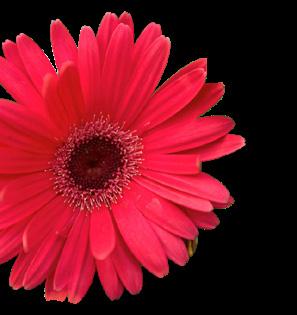
 By Eli Sustainabilidit
By Eli Sustainabilidit
The Pride Club exists for students and staff members who identify as part of the queer community or allies to socialise and provide support for one another. We partner with groups like the ALLY Network, and the Wellbeing Hub on campus to improve student experience and ensure that everyone has equal access to education at Adelaide regardless of gender or sexual identity.
We host fortnightly afternoon teas that anyone can attend for free! We often have board games or will sit around and play mafia or even truth or dare! We also run collaborations with other clubs for morning teas, movie nights, and panel discussions. Coming up this year we’ll be running a lot of education sessions about queer history in Australia.
3.
The groups founded in the 70s on and around the Adelaide Uni campus, which would eventually become the Pride Club, actually helped organise the first pride march in South Australia in 1973! Many of them also travelled to Sydney in 1978 for the first Sydney Gay and Lesbian Mardi Gras.
5.


We provide a space for queer folks that isn’t inherently political. We don’t have to explain ourselves or defend our identities, we can just be. We also function as an important go-between for students who have concerns about their treatment or who need us to advocate on their behalf.
4.
How can students get into contact with you?
The best way for students to get in contact with us is via email: pride@clubs.youx.org.au. We love to hear from you whether it’s a collaboration idea or a concern you need help with!
You can also find us posting on Facebook as the Adelaide University Pride Club

The first governor of New South Wales set out just two crimes he believed should be punishable by death in the new colony: murder, and sodomy (aka the criminalisation of sexual acts between men). But to the great shame of the British Government, put a giant same-sex prison on an island far, far away and what do you get? ‘The Sodom of the South Seas’.
Men hugely outnumbered women in colonial Australia, no matter whether you were convict or free-settler. Despite Governor Phillip’s aspirations, and wildly racist suggestions about what should be done with those found guilty, homosexuality ran wild.
The comprehensive monitoring of inmates resulted in surprisingly robust records of queerness in colonial Australia. These prison records, while detached and discussing homosexuality only through the lens of criminality, are the most evidence from that era found anywhere in the world. Those coming from Britain were rarely of high class, had a reasonable awareness of homosexuality, and there were no women to speak of.

Of course, it’s always worth reiterating that adding more women to the situation would not have magically ‘fixed’ it. In fact, women weren’t missing out on the fun either! A Tasmanian women’s prison held an inquiry into ‘unnatural’ behaviour and found rampant evidence of inmates pleasuring each other. The same ‘issues’ plagued women’s factories.
People got so upset about all this that when the British Government held an inquiry about the success of the Transportation Project (aka the penal colony) in 1837, the project was labelled a massive ‘failure’. The inquiry likened the colony to slavery and a hotbed of ‘unnatural propensity’. Shockingly there wasn’t much mention of the Transportation Project’s impact on First Nations people…
The widespread fear of homosexuality was used as a major justification for ending the Transportation Project. But ‘the Sodom of the South Seas’ was by this point stuck with its reputation. The straighter settlers were horrified by the ‘threat’ posed to moral values and traditional families. Australia was built on homophobia, and that’s hard to undo.
But it wasn’t all doom and gloom for queer colonial settlers. Many lived happily in pseudo-marriage relationships, often using the classic perpetual bachelor/spinster narrative. Even more fall into the ‘probably not just roommates’ category.
Colonial homophobia is a pillar of Australia’s torrid history, with long lasting effects. And with or without the perfect, insulated, same-sex environment of a penal colony, queerness in Australia was always here to stay.
References

Aldrich, R 2003, Colonialism and homosexuality, Routledge, London. Queerstralia, The Law 2023, television program, Australian Broadcasting Corporation, Sydney, 28 February, <https://iview.abc.net.au/video/DO2122V001S00>.
Aldrich, R 2003, Colonialism and homosexuality, Routledge, London. Queerstralia, The Law 2023, television program, Australian Broadcasting Corporation, Sydney, 28 February, <https://iview.abc.net.au/video/DO2122V001S00>.

Smaal, Y 2017, Queer relationships in nineteenth-century Australia, Australian Women’s History Network, <http://www.auswhn.org.au/blog/queer-19th-century/>.
Smaal, Y 2017, Queer relationships in nineteenth-century Australia, Australian Women’s History Network, <http://www.auswhn.org.au/blog/queer-19th-century/>.
Louise Jackson (she/her)
Tempestuous Waves
Sally Walker, Vivian Choi Milton
30/6/2023 @ 12:30pm
Elder Hall, Adelaide
$14 general admission, 25% savings with a Gold Pass subscription
Tickets available from Elder Conservatorium of Music Concert Series website, Lunchtime Concert Season One
Enchanted Moments
Dean Newcomb, Thomas Marlin, Michael Lerace
1/7/2023 @ 6:30pm
Elder Hall, Adelaide
$20-$32
Tickets available from Elder Conservatorium of Music Concert Series website, Evening Concert Series
Snapshots of Love and LIfe
Seraphim Trio, Lorina Gore
15/7/2023 @ 6:30pm
Elder Hall, Adelaide
$20-$32
Tickets available from Elder Conservatorium of Music Concert Series website, Evening Concert Series
Will Vinson: Solos, Duets and Trios
Will Vinson, Elder Conservatorium Jazz Staff
24/6/2023 @ 6:30pm
Elder Hall, Adelaide
$20-$32
Tickets available from Elder Conservatorium of Music Concert Series website, Evening Concert Series
Running with Scissors Final Ever Show
Running with Scissors, LOLA, Cove Street, The Birds are Spies
24/6/2023 @ 5pm
Unibar Adelaide, Adelaide
$11.83 from Moshtix
The Genevieves, No Lemmin, Pink Duke
5/7/2023
Crown and Anchor, Adelaide
Free Entry!
If you’re a student of UofA and have an upcoming gig in May, please email us at onditmag@gmail.com and we’ll include it in our gig guide!
More information and updates: @thegenevieves
Voyager Australian Tour 2023
Voyager, guests tba
16/6/2023 @ 9:30pm
Unibar Adelaide, Adelaide
$43.43/$105.11 from Moshtix

Juliet Oliver, Ivy-Lee, INFINITIES, Lizzie Hosking, Shanaya Silva, DJ Rare and a comp winner
17/6/2023 @ 5pm
Unibar Adelaide, Adelaide
$16.92 from Moshtix
Andrew Haveron, Anna Goldsworthy
16/6/2023 @ 12:30pm
Elder Hall, Adelaide
$14 general admission, 25% savings with a Gold Pass subscription
Tickets available from Elder Conservatorium of Music Concert Series website, Lunchtime Concert Season One
Homage
Tair Khisambeev, Elina Faskhi, Konstantin
Shamray
23/6/2023 @ 12:30pm
Elder Hall, Adelaide
$14 general admission, 25% savings with a Gold Pass subscription
Tickets available from Elder Conservatorium of Music Concert Series website, Lunchtime Concert Season One
Windwalker, Caskets (UK), Alt
21/7/2023 @ 7pm
Unibar Adelaide, Adelaide
$44.90 from Moshtix
Windwalker ‘Love in The Dark’ Australian Tour(March 21 - April 19)
This June, Aries, the universe urges you to embrace your unique self. Dive headfirst into new experiences and connections within the community. Don’t be afraid to let your authentic self shine. Open your heart to love and friendship, and watch as the world embraces you in return. Remember, your individuality is your greatest strength.

(April 20 - May 20)
Dear Taurus, this month presents an opportunity for self-reflection and growth. Take time to explore your desires, and understand what truly makes you happy. The cosmos encourage you to seek deeper connections, both romantically and platonically. Embrace vulnerability and let your heart guide you towards the relationships that will nourish your soul.



(May 21 - June 30)
Gemini, your charm and wit will be at an all-time high, making you the life of the party. The mid-year break is upon us so use this time to embrace your natural ability to connect with others and build new friendships. You may find that your ideas and opinions are valued more than ever. Speak your truth and let your voice be heard.

(June 21 - July 22)
Dear Cancer, June encourages you to nurture your emotional well-being. Take time for self-care, and explore activities that bring you joy and peace. You are worth more than your grades, so don’t allow unrelenting standards to destroy your self-worth. Embrace the support and love that surrounds you. Remember, you are worthy of all the happiness the world has to offer.
(July 23 - Aug 22) Virgo

Get ready to shine, Leo. This June, the spotlight is on you! The universe encourages you to express yourself creatively and fearlessly. Step into your power and let your authentic self shine. This month, you have the potential to make a lasting impact and inspire others with your creativity. Why not embrace the local LGBTQIA+ community and its diverse array of talents and passions by checking out some drag shows or queer crafts.
(Aug 23 - Sept 22)
Dear Virgo, June invites you to explore your sense of belonging within the community. Seek out spaces where you feel supported and understood, such as UoA Pride Club or the ALLY Network. You may find yourself drawn to intellectual conversations and deep connections. Embrace your analytical nature and use it to foster understanding and empathy. Remember, you have a unique perspective to offer the world.
Balance is key, Libra. This June, focus on finding harmony in your relationships and within yourself. Seek healthy and supportive connections and embrace the beauty of compromise and collaboration. Remember, you deserve love and respect in all areas of your life. When you find balance, you can achieve incredible things.

Passion and intensity define your June, Scorpio. Allow yourself to explore your desires and your deepest passions. This month, you may find yourself drawn to experiences and connections that will prove transformative. Let go of your fears and insecurities, and embrace vulnerability. When you allow yourself to be fully seen, you create the space for profound connections and growth.
Adventure awaits, Sagittarius! June calls you to explore new horizons. Seek out experiences and connections that expand your worldview. Embrace your natural curiosity and desire for freedom. This month, you may find yourself embarking on a journey of self-discovery and personal growth. Embrace the unknown, and let it lead you to exciting places.
(Dec 22 - Jan 19)
For you, Capricorn, June is a time of grounding and stability. Focus on cementing a solid foundation in your relationships. Surround yourself with people who support and uplift you. As it’s Pride Month, you may find yourself drawn to activism and advocacy. Use your determination and leadership skills to make a positive impact on the lives of others.





(Jan 20 - Feb 18)
Innovation and community will define your June, Aquarius. Embrace your unique perspective and seek out likeminded individuals within the queer community. This month, you may find yourself inspired to collaborate on creative projects or engage in intellectual discussions. Embrace your individuality and celebrate the diversity of the queer community. Together, you can create meaningful change.
(Feb 19 - March 20)
Dear Pisces, June invites you to dive deep into your emotions and explore your intuition. Trust your instincts when it comes to making connections within the queer community. This month, you may find yourself drawn to spiritual practices and self-reflection. Embrace your compassionate nature and lend a helping hand to those who need it. Your empathy is a powerful force.

E Y O U K A T E ?
Are you and I meant to live side by side?
Two peas in a pod. Opposing halves of one person. When I need to feel sexy, confident, utterly chaotic, you come out to play. And while you rest, I walk around with a self-assured swagger.
Fucking M A N L Y. And sometimes we both have a hand on the wheel, the happy medium between cute and cheeky, and oozing BDE.
Are you just a fetish? One of many weird fantasies to withdraw from the bank when I wish to indulge. Maybe I don’t wish I was you, maybe I wish I could lay with you. You’re a costume I wear, a body I imagine to get hard. Safer, sexier than the one I currently have. I have my fun, then toss you away like a sticky tissue once I’m done.
Or are you who I’m really meant to be and I’m just too afraid to admit it. You’re not just a fetish, you’re not one out of two. We’re one and the same, you’re me. You’re real.
But you’re really expensive. To introduce you requires honestly and heartfelt emotions (ick). What if people don’t like you?
What if you’re a mistake? Even if you are real, I live in fear to let you loose.
Whenever I think I have you figured out, I just get perplexed again. Maybe one day I’ll finally nail down who you are. It may be scary. It may be hard. It may make me hard. Maybe all three.
Or maybe you’ll be a pain in my ass and keep me wondering? God help the world, should it get the chance to meet you.
(This piece talks about the ongoing petition in India to legalize same-sex marriage. This petition is currently being heard upon in the Supreme Court of India and has not seen a verdict as of 30th May 2023. Although LGBTQI+ relationships have been legal in India since 2018, couples in these relationships are still not granted the same rights as those in legally recognised marriages. Some parts of this piece are fictionalized and must not be considered as case facts entirely.)


My grandmother’s ring weighs a ton in my pocket as I sit anxiously as a silent witness to the scene unfolding in front of me. As cheesy as it sounds, to calm the nerves, I think back to the day when I first saw them and how easy it was to be my most authentic self around them. This somehow makes me a little less anxious, yet the reality was far too jarring for me to ignore anymore.
How was my want to celebrate my relationship an ‘elitist demand’? As if I had been given too many rights already, as if these basic human rights were a privilege that I should be thankful for every single day, and asking for the same rights my heterosexual friends enjoy would be flouting the traditions of this country. We are a country that worships cows and stone deities and godmen; we are a country where nobody would even look twice if you were to marry a tree as a ritual to ensure a happy marriage with your partner later on, yet, we are also a country where marrying another non-binary human is a perverse action comparable to incest.
Since I could only be a silent spectator today, I decided to distract myself and think about the times I’ve spent with them, the good ones and the bad. I remember our first public date in 2018 and the joy of holding their hand fearlessly as we walked on the beach. I think about what marriage meant to me. For me, it just meant finding joy in the mundane with them every single day, and the lawyer in me looked forward to having the legal benefits that came with a marriage.
The bell chimes, signaling the time to be 5pm. Another day went by, listening to the frivolity of this case with no outcome. Another day went by, where I witnessed the world’s largest democracy question and attempt to change the meaning of the right to equality for all. Another day went by where I chose not to propose.
Perfecting the bi-liner is a gay staple. Tumblr led us here, and here we have stayed ever since. The bi-liner was made to be hard; it’s a rite of passage. But, I hope this helps our young on their way to master this ancient art (circa 2012).

Your weapon of choice is extremely important: if you’re using a shit eyeliner, your eyeliner is probably going to look shit. This, however, does not mean expensive!!! If you’re looking for a good eyeliner that isn’t painful on the pocket, I love the Maybelline HyperEasy — it has an easyuse brush tip and is super black! But be warned; it’s more on the liquid side, so it takes a bit of practise. Otherwise, my favourite liner is the Stila Stay All Day: stunning, fabulous, gorgeousnever did a gay wrong.
All this said, you don’t have to use a liquid liner at all. Eyeshadow on a damp angled brush will do just fine and it’s great to practise with. If you’re struggling, put a piece of cello-tape angled up from your outer corner and use it to create the edge of your eyeshadow wing — baby-gay friendly! Whether you blend the upper edge or not is up to you; it will produce two very different looks.
Calm down, baby-gay, you’re probably making this harder than it needs to be, and that’s okay. I’ve been there. Not all eye-shapes require a fulllength wing from tear duct to eyebrow. You can easily get away with a half liner, and half liner is way easier to do (as described above).
If you’ve got big old bug eyes like yours truly, a bigger liner does work better. We’re not here to pussy-out with some dainty crap. You can always make it gayer.


Keep your eye open when drawing on the outer wing. This will allow you to see the shape you’re creating and get an idea of how it will look when you’re finished.
Draw the wing first from the end of your eye before lining the eyelid. You don’t want to be making your liner bigger and bigger trying to make them seamless.


Start from the centre of your iris and work outward. Use the pen shape of the brush to create a tapered shape from centre to wing.
Clean up your mess. Think negative space. Use makeup remover first with a q-tip to clean the edges of your wing and follow up with concealer if needed.
If you struggle with eyeliner, it could be because of your eye shape. The conventional Tumblr eyeliner doesn’t work the best for hooded eyes or monolids. That doesn’t mean you can’t do eyeliner - or just do a big ole wing anyway! Either way, here are some tips to make things a little easier for you.
Keep your eye open when doing the liner! A common tip, but it helps a lot to see the amount of space you’re working with, prohibiting that oh-shit moment when you look up and the liner disappears.
Make sure your liner dries or to set your liner with loose powder before looking up. Hooded eye shapes have a tendency to get oily and stamp the liner back onto the eyelid, making a big mess. Putting a lid shadow all over once you’re finished your liner will also help it stay nice all day.
Work with the eye. I seriously love a downturned liner, which is a bit harder to master, but looks stunning on hooded eyes and monolids. Try playing around with eyeshadow on an angled brush and create a shape that sits perfectly on your eye.
If all else fails, go big or go home. Keep your eye open and draw on the wing over your eyelid. Don’t stress about how much skin you’re actually painting, just focus on what the shape looks like with the eye open. Editorial glamour!
Play around with shapes and colours. Fuck around and find out! Eyeliner is meant to be fun and gay — do it justice. You don’t need to keep it conventional and you don’t need to be like everyone else. You got this!

Psst! Have you ever thought about transing your gender? Or maybe you know someone who wants to go on hormones but is unsure about how to start. Well, as someone who has been described as a “model transgender” by a New Zealand Family Court judge, I have some hot tips and tricks to help the whole process go smoothly.
First things first, if you want to get on hormones, the best place to start is your doctor! Having done all of this before, I know that talking to your doctor about this topic can be awkward and anxiety inducing, especially if your doctor is some old guy who’s been your family doctor since you were a toddler. If it’d be more comfortable, you can always go see another GP that’s maybe less involved with your family, or you can bring a support person to stick up for you.
You might not know this, but any GP can prescribe HRT. So, if you’re lucky, you might have a GP that’s comfortable with trans patients and you can handle everything through them. It’s far more likely that your GP will be unsure about how to handle HRT, though, so they’ll probably refer you on to an endocrinologist or a sexual health physician. An endocrinologist is a specialist doctor that deals with hormones and a sexual health physician is a doctor who has undergone training covering stuff related to sexual health (which includes trans healthcare).


At this point you’ll be put on a waiting list. Luckily, there’s a trick that might shorten your wait. When you make your appointment, ask to be put on the cancellation list. This means if someone else cancels their appointment, that slot might be offered to you at short notice. Receptionists and admin people are very busy, though, so it doesn’t hurt to ring up every now and then to check if there are any earlier appointments available. With any luck, the wait won’t be too long, and you’ll be face-to-face with a doctor comfortable managing hormone therapy.
There’s another important point I should make here. In 2023, the consensus from the medical community is that a gender dysphoria diagnosis from a psychologist or psychiatrist is not required to access hormone therapy. If any doctor at any point in the process requires you to get diagnosed before they will treat you, then you are well within your rights to walk out and see another doctor that is more familiar with the modern standards of care. As a patient, your doctor has a duty of care to you. This means that you have a right to be treated with respect, no matter who you are. If you feel you haven’t been treated with respect, then you are well within your rights to complain. I know it’s not easy to advocate for yourself, especially if you belong to a vulnerable minority. If the worst happens and you find yourself in this situation, then there’s nothing wrong with leaning on support for help, or even just letting it be because you have better things to be doing with your life.
Once you’re face to face with a doctor willing to prescribe hormone therapy, the first thing they’ll get you to do is take a blood test. This is to get a baseline read of your sex hormones, and other biometrics that are an indicator of general health. Your doctor needs this to get an idea of what your starting dose should be. After this we come to the final step (provided your blood tests report no problems) – informed consent. As a society we’ve agreed that as an adult, you should be able to make decisions about your own body without getting permission from someone else first. Informed consent encapsulates this idea. You sign a document that says you understand what hormone therapy will do, how much of it is reversible, and the risks involved.
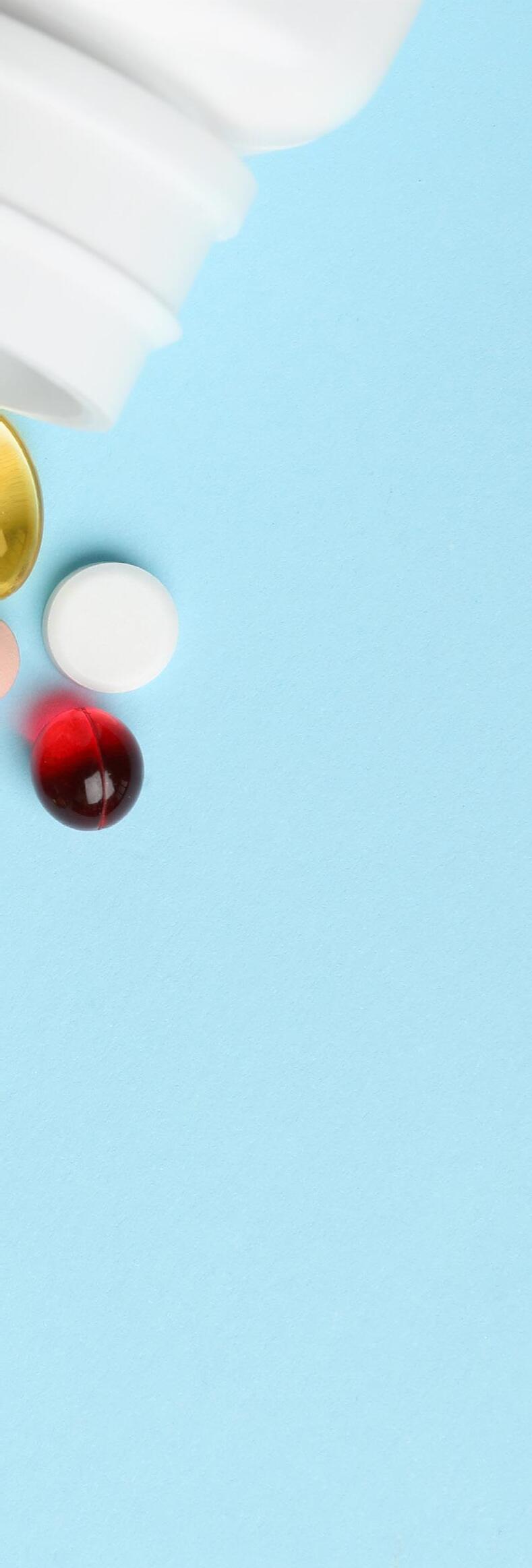
Hopefully that day you’ll walk out with a prescription. If you want masculinizing hormone therapy, you only need one medication – testosterone (also known as T). This comes in either gel form or as an injectable, although doctors will usually start you on gel. If you want feminizing hormone therapy, you’ll be prescribed at least two medications – a testosterone blocker (also known as a blocker) and estrogen (also known as E). Testosterone blockers only really come in pill form, whereas estrogen comes as a pill, gel, or patch. There are a few testosterone blockers that are used, and each has its own side effects which your doctor will explain to you. Depending on how old you are, or some other factors, your doctor may put you on a puberty blocker before or during hormone therapy. Puberty blockers are the same no matter which equipment you started with, and only come as injectables. Contrary to what some people on the internet say, puberty blockers are well known to be safe, reversible, and effective. Anyone who claims that puberty blockers will turn a child’s bones into paper mâché is a dipshit.


I’ve had some trans people ask me if their doctor is short-changing them with their dosages, and it’s easy to find out. Your doctor is legally obliged to share your health records with you, and this includes blood tests. To make it easier, you can set up MyHealthRecord and have your blood tests sent automatically to an app on your phone. Blood tests are easy to read and include the reference ranges right on the form. Since different people respond to these medications differently, there’s no “right” dosage, only the right dosage for you. If you feel like you don’t have enough hormones, but your levels are okay, then your dosage is probably fine. However, if you’re feeling side effects, then bring those up to your doctor. There may be some medical problems unrelated to your levels directly but are being influenced by hormone therapy.
Finally, you might be wondering what hormones will do for you, and when those changes will take place. Will you grow a Viking beard two days after starting T? Truth is, no one can tell you that ahead of time. I’m not going to talk about what hormones actually do, since doctors seem to really want us to know the potential effects of hormones before starting and you’ll inevitably get that talk during the process. When that happens, though, I really want you to listen to your doctor and imagine yourself having had those changes. Is that a person you want to be? Is that a body you’d be happy living in? If yes, then you’re probably going to get something out of hormone therapy. In which case, I’m genuinely very happy for you, and wish you a joyful transition.

‘Intersectionality’ is a word that gets thrown around a lot these days. “We run an intersectional space.” “Make your feminism intersectional!” “Uplift intersectional voices!” But I think most of the people using this word don’t actually understand what it means to have marginalised identities intersect with one another. I find this to be especially important to the queer community. As a community we reach beyond boundaries of race, culture, or religion; but most people tend to ignore how much these identities alter our experience of queerness.
For the longest time, I kept religion and
in my head. The impact left by evangelical Christianity on the wider depiction of religious reactions to queer people is something I’m still learning to move past. I wish more people were willing to move past basic assumptions of religion. I’m sure my Muslim siblings can relate to the experience of people assuming faith is incompatible with a queer identity, or trying to compare an entirely separate faith with Christianity under the pseudo-label of “Abrahamic Religions”.
Let me be clear, my queerness has never been in direct conflict with my practise of Judaism. If anything, my queerness has presented new opportunities to discuss and reinterpret ancient texts, and how I relate to them. The Talmud gave me words to describe my gender identity and the spiritual roles I wish to fulfil better than any western/ English ‘amab/afab’ designation has.
That is not to say my time in different spaces hasn’t had its challenges. There are always people who haven’t learned, and those who do not wish to learn, but unlike many other spaces, I have never felt threatened by the people I share Jewish spaces with.
My experience being queer in Jewish spaces is not all that dissimilar to my experiences being Jewish in queer spaces. After all, many of the people who seek eradication of the queer community believe that we are a leftist extremist cabal, who are controlled by Jews seeking the destruction of ‘traditional values’. Even if I were in one of these communities, the same people would still threaten me.

The biggest similarity I’ve experienced is when people learn that I am Jewish or queer, they immediately begin asking a torrent of questions. Most of them aren’t about me or my identity, rather my politics or my understanding of history. And I sit there hearing these questions, knowing that my answer to them will be used by this person as a primary source. I am expected to be a fount of knowledge and to represent extremely diverse cultural communities.
“What do you think about all those holocaust deniers?” I try not to think about them.
“Did you see that Posie Parker?” Yes, I’m fucking terrified of the discourse she’s introduced ignorant parents to.
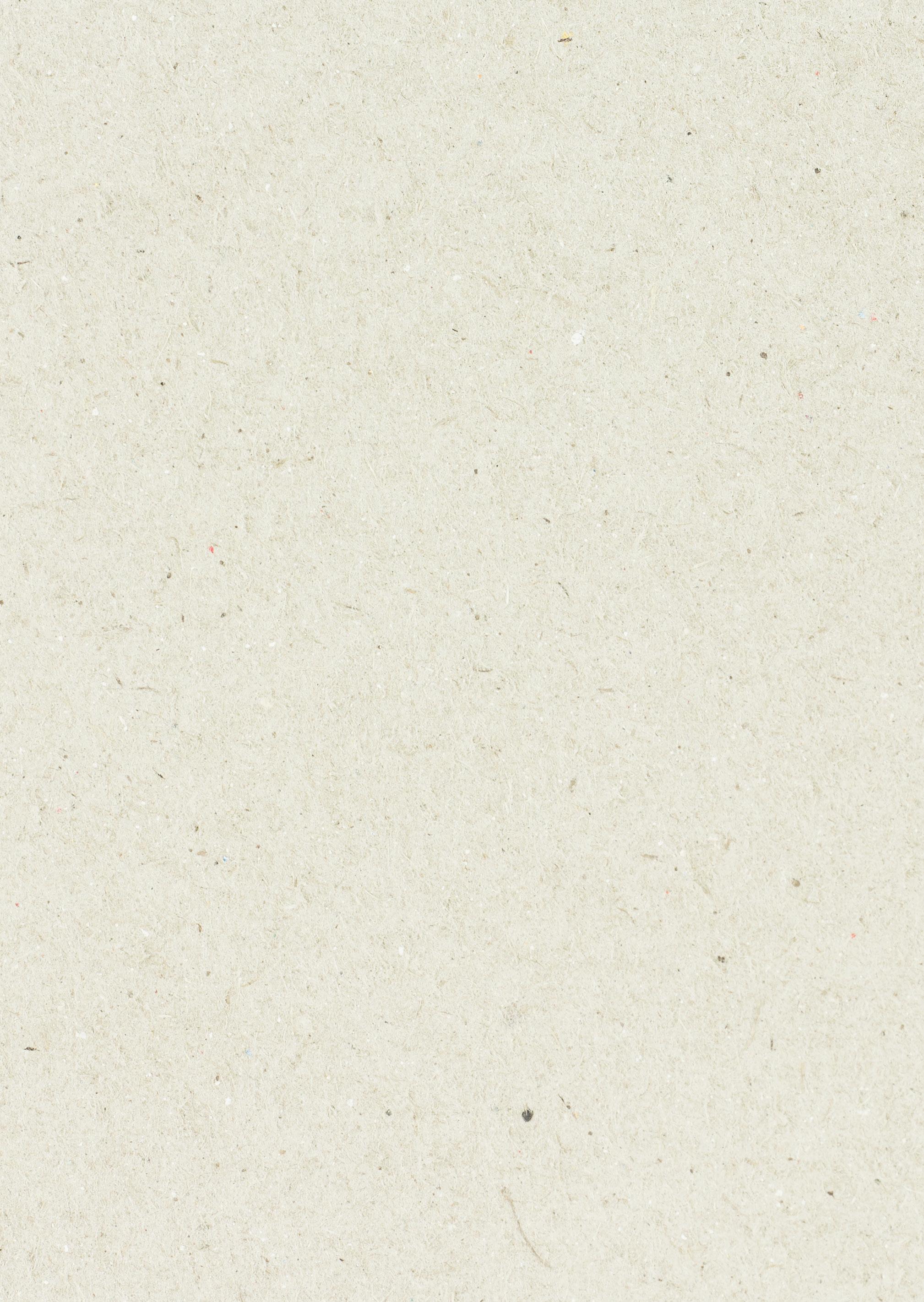
queerness separated
But if I don’t answer, is that worse? What if they go looking at sources that are harmful, but they don’t realise it? Do I have a moral obligation to be a teacher when I’m still learning about my identities as political ideologies too? I often feel the need to put up a front that my communities are perfect and homogenous. I act like I agree with everything that everyone at my Shul believes, otherwise I’ll make us look uncoordinated and shallow. I ignore all of the discourse in queer circles when talking to outsiders, otherwise I’ll make it look like it’s fine to attack us since we’re attacking each other.


I’m getting better at trying not to treat every interaction with outsiders like a performance or a game that I have to win for the betterment of my peers. I’m learning to connect with other religious people inside of the queer community. I’m realising there are even more queer people and allies inside my religious community than I thought. Outsiders are still a test of my patience more than anything else, but at least as far as the two groups that define my personal culture go, I am learning to love both despite their flaws.
anon
On the 27th of April 2023, parts of lesbian instagram exploded.
Popular wlw dating app HER posted screenshots of tweets from their account denouncing TERFS within the lesbian community, especially those flying under the radar by putting ‘GC’ (gender critical) and green/white/purple hearts in their bio (both are transphobic dog-whistles). In response, @lesbian_herstory wrote a blog article attacking HER’s trans-inclusive posts, claiming that HER called lesbians ‘bigots’ for not supporting trans women.
@lesbian_herstory argued that ‘lesbianism is not a choice, let alone discrimination against the male sex.’ They had run an 8-hour poll asking lesbians who followed them if they felt that there was ‘pressure’ on lesbians to be ‘inclusive’ and ‘go against our female-exclusive attraction.’ They received 1050 responses.
The blog post continued with the argument that ‘sex is not a human right,’ comparing trans lesbians to incels and continuing to spread the damaging stereotype that trans women are forcing cis lesbians to have sex with them. The article ended with the claim that, by welcoming trans women into the community and treating them like the lesbians they are, lesbianism is being eroded, and that trans-inclusive lesbians pose a homophobic threat to their own community.



The team at @lesbian_herstory would have you believe that the responses of just over a thousand people are indicative of an entire international community, filled with people of all ages, classes, and most importantly, diverse gender identities. This is not the case.

In a world where womanhood is defined by our attraction to men, men’s attraction to us, our ability to produce children, and our ability to fulfill the gender roles expected from us, lesbianism is a direct subversion of these roles. This can lead lesbians to feel alienated from womanhood; how many lesbians, when asked about their gender identity, state that ‘[their] gender is lesbian’? Even more lesbians express discomfort with being called a ‘woman,’ even if they do identify as one. Additionally, @lesbian_herstory are suggesting that biological sex is the be all and end all of gender expression. It is 2023. By now, we know that sex does not equal gender, and as such, gender is not binary and never has been. We also know that sex, like gender, exists on a spectrum. The argument that lesbianism is purely sex-based is tired and transphobic. Trans women are not heterosexual men trying to invade lesbian spaces. They are lesbians, and they have a right to be here.
Let us not also forget the hallowed institution of butchness. Being butch is an identity that contains multitudes. As a non-binary femme myself, I know people of all gender identities that identify as butch lesbians. The label suggests existence outside of the gender binary that @lesbian_herstory appears to be enforcing. Butchness, and by extension femme identities, exist outside of the gender binary by virtue of being labels for queer women and lesbians – women that exist outside of traditional patriarchal definitions of womanhood.
Trans women, our sisters, should not be painted as sex pests and incels. They are lesbians, just like us, and they deserve our respect and care. Trans lesbians belong in the lesbian community. Womanhood is tangled, complicated, and ever evolving, As is lesbianism. So, why can’t we include our sisters, and not just our cis-ters?
As I inch closer and closer to my 21st birthday, I’ve been feeling particularly crummy. Why’s that, you ask? Well, apart from being generally considered a fully-fledged ‘adult’ by society (truly terrifying), I’ll be grappling with the knowledge that I’ve failed to achieve a certain milestone, the pinnacle of human existence: marriage – to a man, no less.

You see, my wonderful mum married my equally amazing dad on her 21st birthday, and they’ve been happily together ever since. While this might seem like a somewhat unusual case in 2023 (of course it’s considered perfectly acceptable nowadays for people, especially women, to delay or forgo marriage altogether. Actually scratch that, no it’s not), and my parents never held the expectation that I’d also adhere to this timeline, I can’t help but feel like a disappointment. Especially because I’ve never even been kissed. Or asked out. Ever (unless you count one marriage proposal at age 5 – which I don’t).
This has largely been by my own design, as I am generally disinterested in romance (the staunch feminist in me is cheering, ‘fuck all men, you don’t need no man’). Let me be clear, I am not asking to be pitied or seeking attention by divulging this information. I know my lack of romantic experience does not make me less of a human, nor does it decrease my value as a person. I have so much more to offer, like my fabulous sense of humour! Nevertheless, it still makes me feel so embarrassed, alienated, and unattractive. After all, if I am supposedly not ugly, why has no one ever shown so much as a sliver of interest in me in that way? Although admittedly I am not very good at reading people.

So who is to blame for having the gall to make yours truly (a strong independent woman) feel this way? A dickhead called ‘amatonormativity’ – that’s who.
Coined by philosopher Elizabeth Brake, in her book Minimizing Marriage: Marriage, Morality, and the Law (2012), amatonormativity is the widespread assumption ‘that a central, exclusive, amorous relationship is normal for humans, in that it is a universally shared goal, and that such a relationship is normative, in that it should be aimed at in preference to other relationship types.’
Alongside the societal pressure to date and get married that I so obviously feel, amatonormativity also manifests in well-meaning, yet uncomfortably presumptive, statements like ‘Do you have a partner yet?’, ‘Oh, you don’t? You just haven’t found the right person yet’ or ‘Don’t give up! There’s plenty of fish in the sea’ (don’t they know we’re living in a man drought? Lol).


This is something we all experience, regardless of whether you’re straight or queer. The fear of loneliness is what drives us to enter unhealthy or abusive relationships, and makes it almost impossible to leave them. But no one feels the damaging effects of this concept more acutely than aromantic, asexual, and non-monogamous people.

Amatonormativity places romantic love on a pedestal above other equally meaningful relationships, including friendships and familial bonds. If two people are dating, we usually say they’re ‘more than friends’ or conversely that they’re ‘just friends’. If you don’t experience romantic or sexual attraction, or experience it to a lesser degree than ‘normal’ (if you even understand this, I see you a-spec folks!), or are more into casual sex and open relationships, what hope do you have to live in this cost-of-living crisis we call a society? Single and polyamorous people aren’t granted government benefits relating to housing and taxes, despite only having one source of income, further pressuring people to become romantically entangled to ease economic pressures.
But the most distressing aspect of amatonormativity is the profound sense of loneliness and alienation. Whether people realise it or not, most of our conversations are centred around people’s love lives (and why the fuck is ‘love’ automatically considered romantic in this phrase?). From fellow students happily recounting how they got married on the weekend, to co-workers excitedly discussing who their latest crush is, to a friend absent-mindedly mentioning dinner plans made with their partner, it all gets to be a bit too much. That’s not to say that you should feel guilty for being in love, or refrain from speaking about romance altogether, but it bears to be mindful of your loved ones, and indeed strangers inadvertently eavesdropping, who don’t relate and are struggling to make peace with their identity in an amatonormative world.
In South Australia, there are natural physical barriers such as rivers, mountains, and tunnels that arbitrarily tell us where things start and where things end. These barriers also create a buffer between the plains of the west and whatever lies to the east of them, encircling the state’s capital city. I happen to live east, south of the ranges, which has had interesting consequences based on previous choices I’ve made.
Growing up in the Adelaide Hills, access to the city became easier with the opening of the Heysen Tunnels in 2000. However, a barrier still existed in the hearts and minds of those on either side of the Tunnels. Despite being only 15 km from the CBD, it was challenging to get new friends to come my way because it was deemed too far and the ‘wrong side’ of the Tunnels to visit, which was extremely isolating.
In 1994, The Adventures of Priscilla: Queen of the Desert said that the suburbs were there to keep them out and keep us in. The further east you head, the more rural it gets. Although located 40 km from the CBD, The Adelaide Hills are still considered to be quite rural with services dropping off further as you go further east. This lack of service increases isolation and disconnection from the Adelaide community.
A small country town anywhere in the state typically has a few things going for it: a pub, a church, and a football team. The quirky patch of soil where I live has nine churches, footy teams, and pubs, along with three primary schools and a high school. Some families have lived in the area for generations, and there are also professionals who flitter in and out for their one-year teaching or nursing contract straight out of Uni.
After six years at Uni, I decided to pay down my accumulated HECS debt and leave the Hills. I managed to get a job by knowing where the town was, nearby Hamlet, and being aware of the moratorium on shopping hours potentially being an issue. With the growing unrest toward the LGBTIQA+ community in 2017 that emboldened people to express themselves, leading me to fear for the young people, who are still unable to be their true authentic selves. We held our first rainbow flag raising at the high school, which has slowly grown over subsequent years.

As a teacher, I have a profound impact on young people’s lives, with opportunities to broaden their horizons. However, it can come at a terrible cost, including poor work-life balance and continual confrontation of what I value and what I am willing to let slide. I teach a bit of C# and colour theory, along with strong warnings against using Comic Sans. I take country kids to Melbourne for a pottery class and art appreciation, and we discuss living in a rural and regional town, how it works, and how it is connected to the world.
Each year for at least the past 10 years, a regular callout goes to the local government in South Australia to fly the rainbow flag on days of significance. And each year, the number slowly grows, but the same few holdout Councils trot out old and tired arguments about why they’re not flying the flag, likening it to flying the flag for extremist groups. Wattle Range had to revisit the issue again in January 2023, when the local Baptists took a problem with the rainbow flag being flown.
However, what is clear is that physical barriers, distance, and lack of services can increase isolation and disconnection in rural and regional areas, making it difficult for individuals to find their communities and for communities to come together. This is where initiatives such as raising the rainbow flag can have a significant impact, providing a visible symbol of inclusion and acceptance, and bringing together like-minded individuals who might otherwise feel isolated.
Living in a regional town can have its challenges, including physical barriers, distance, and a lack of services. However, with these challenges come opportunities to build strong, tight-knit communities and to create meaningful change. Whether it’s through initiatives like raising the rainbow flag, or through education and discussion, there are ways to bridge the gaps and bring people together. As someone who has lived and worked in a rural town, I have seen firsthand the power of community and the resilience of individuals who are committed to making a positive difference.


 By Dalestair Kidd (they/Them)
By Dalestair Kidd (they/Them)
I’m queer and I’m a nerd, so when I saw an event entitled ‘Big Crit Energy: A Chaotically Queer Live D&D Show’, it’s needless to say my interest was piqued. Hosted by Dungeons & Dragons internet sensation Luboffin (she/her), ‘Big Crit Energy’ is a monthly adventure held at My Lover Cindi on Flinders Street. The show features one charming Dungeon Master (DM) and 4 delightfully queer adventurers in a panel-esque setup on the My Lover Cindi stage, where the story comes to life before the audience through clever wordplay, sound design, cosplay, and a whole lot of improv.

The cast of ‘Big Crit Energy’ deserves high praise for their exceptional performances. The chemistry between the players was evident, and their dedication to bringing their characters to life was commendable. Ellen Graham as Periwinkle Lightfoot, an elven druid with a fondness for ‘botanicals’, never failed to make the audience laugh, while Saskia De Muir’s half-orc bard, Gnorgdumph, won hearts with their beautiful naivety and ‘singing’. Rounding out the cast is Coogs McNally, who pivots from spoken word poet to barbarian dwarf, Gorsha Axevound, with a love of breasts and axes, and Diana D’Vine as warlock Reggie Price, who is set on forwarding their patron’s pyramid scheme.
One aspect that particularly impressed me was the inclusivity and support fostered throughout. ‘Big Crit Energy’ created a safe space where everyone felt welcome and respected. The show’s emphasis on consent and open communication through ‘X-cards’, a device that players can use should the narrative enter triggering territory, was fantastic to see, ensuring that all players and audience members felt comfortable and valued.
If you’re looking for a remarkable adventure that combines the thrill of role-playing with a celebration of queerness, ‘Big Crit Energy’ is an absolute must-see. Prepare to be whisked away into a world where imagination knows no bounds, inclusivity reigns supreme, and where the Dungeon Master (DM) has to pretend to be a fish within the first 5 minutes of the game.

Dalestair: Hi Luboffin! Thanks for taking the time to chat with On Dit. First, can you tell us a bit about yourself?

Luboffin: Thanks for having me! My name is Luna and I am a bisexual content creator based here in Adelaide. I make content all about Dungeons & Dragons, especially the show ‘Critical Role’. Before I was doing content creation, I was a full-time jazz and burlesque performer and producer! I’ve had a pretty mixed-bag career so far.
Dalestair: So Dungeons & Dragons and performing are clearly things you are passionate about. Is that what inspired you to start a ‘Chaotically Queer’ D&D show?
Luboffin: I retired from stage performing and producing around 5 years ago, but I have always missed being on stage. When the applications for Feast 2022 opened, a friend encouraged me to combine my love of D&D, my love of the stage, and my queerness into a show, which became ‘Big Crit Energy’. I, along with some incredibly talented performers and role-players, now get to roll the dice every month at My Lover Cindi.
Dalestair: I love that you’ve been able to bring D&D to local queer audiences. In the media, D&D is typically portrayed as a ‘boys club’ activity (e.g. the Hellfire Club in ‘Stranger Things’). Do you think this is accurate to real life? How do you navigate this sphere as a queer woman?
Luboffin: I think there is certainly some accuracy to this portrayal, in that often marginalised groups will feel unsafe or unwelcome in nerd spaces. However, I think as time goes on and progress is made towards diversifying D&D spaces (slow progress a lot of the time, but progress) there has been more room [made] at the table. It is an ongoing struggle for many though. Whilst I have experienced harassment in the D&D space before, my whiteness and the fact that I am ‘straight passing’, since I am married to a man, means I have not experienced the same level of harassment and discrimination as many BIPOC, LGBTQIA+, and disabled folks. I try and use my privilege to make space at the table as much as possible.

On Dit was fortunate enough to secure an interview with Luboffin herself, so check out what she had to share about D&D, queerness, and having ‘Big Crit Energy’.
Dalestair: On the topic of diversity and Dungeons & Dragons, has D&D helped you or players you’ve Dungeon Mastered explore queerness? Does D&D assist with creating dialogues or navigating self-exploration?

Luboffin: I only came out publicly a couple of years ago and it was through playing D&D and other role-playing games that I started to feel more comfortable acknowledging my own sexuality, after playing characters who are not straight. I have heard many stories from people who have had realisations about their sexuality, after exploring different facets of themselves through role-playing. Allowing ourselves to explore and express different ideas and feelings in games can, with the right group of people, be a wonderfully safe and freeing way to explore those aspects of yourself.
Dalestair: Thanks for sharing your stories and experiences with us. I’d love to know what advice you’d give someone looking to get involved with D&D for the first time?
Luboffin: My biggest advice is don’t wait, start now! I mean it, right now! My biggest regret is not starting to play sooner. There are lots of great resources out there for new players and lots of places to find games. Don’t be afraid to step up as the Dungeon Master and get a group together with some friends. I barely knew anything about the game when I started DMing but I learnt as I went. It’s not as scary as you think! The hardest part is starting.
Dalestair: Where can our readers find you if they’d like to know more about D&D or to come and see your show?

Luboffin: If you’d like to see some queer and chaotic D&D in action you can catch my live show ‘Big Crit Energy’ on the second Wednesday of every month at My Lover Cindi, and you can also find me streaming several times a week on Twitch and releasing videos on YouTube under the handle @luboffin.


To begin, I think we should all collectively thank our lucky stars that Mark Latham never became Prime Minister. To put it mildly, Mark Latham is not a very nice man: he tackled a cab driver after a disputed fare, he pled guilty to maliciously damaging News Ltd. photographer Ross Schultz’s camera, verbally attacked Rosie Batty (who has fought tirelessly against domestic abuse since the murder of her son), and he shakes hands aggressively.
Up until now, despite his many shortcomings, he has been considered a fit and proper person to serve in a state parliament by just under 6% of eligible voters in NSW. And Pauline Hanson. This may be about to change, however, due to a rare defence of our community from Pauline Hanson, in response to Mark Latham’s recent tweet about gay men. It is one of the most vile and hate filled comments about gay men I have ever seen. These comments were too hateful even for Pauline Hanson, and that really says a lot. Indeed, this was a sexualised tweet so graphic and horrible that even Sky News would not show it to their audiences. I will give you a moment to let that sink in.
Unfortunately Mark Latham, rather than apologising and making a rare decision to be a good human, used a radio interview (with a disgraced journalist who has been accused of alleged sexual misconduct causing him to lose his job not once, but twice) to launch an unhinged and feral attack on gay men.
Apparently, Mark believes that the mere thought of anal sex between two consenting men is “disgusting”, “horrible”, “vomit worthy”, and “puke worthy”. I could only imagine how shocked Mark Latham would be to discover that anal sex is not only enjoyed by the gays, but also practised by many of the straight males he claims to be speaking for.
Pauline Hanson talked tough about being furious with Mark Latham and called for him to apologise. Now is the time for Pauline to walk the walk and fire this horrible individual who has refused to apologise and has only doubled down on his reprehensible tweets.
 Harper Forsythe (they/them)
Harper Forsythe (they/them)
As we push back against gender roles, the patriarchy has found its last stand in policing sexuality across the board. Lesbians are either derogatorily mannish, or barely squeezed into acceptance through aestheticised gender conformity. Men are either cruel, or vivacious gay best friends.
This understanding of men has created a standard in which their sexualities are debatable when they express kindness, which is obviously too weak a trait to belong to anyone but a woman or gay man. However, when we express that heterosexual men are inherently violent and cruel individuals, we don’t challenge the structures that make it seem so. Rather, we borderline allow this conduct by dismissing it as an inherent trait of manhood; boys will be boys. But positioning male violence as nature doesn’t challenge patriarchy, it presents the subjugation of women as the natural backdrop against which we are obligated to live our lives
‘All the good ones are always gay’ furthers the notion that femininity is kind, loving, and of little substance beyond service of greater masculine forms. This understanding does not buffer the tangible impact of patriarchy on those who aren’t men, nor does it criticise it. When men promote misogyny whilst deviating from the caricatured angry man in a wifebeater, we drag our feet to criticise them. It is sickening to see queerness consistently boxed into the binary to support understandings that negate intersectionality.
This box rears its tokenistic head in the gay best friend, or GBF, whose queerness is a source of exoticism and deviance that heterosexual society would prefer to display from a distance or pocket. Queerness is entertainment and for ownership. Straight women both see gay men as the only safe men to befriend, whilst reducing them to the ‘fun’ parts of queer culture and othering the community.
Friendship between a man and a woman, impossible as it seems, is considered a powder keg of sexual chemistry. When it fizzles, the woman is ‘leading him on.’ This is not an occupational hazard of friendships forged between straight women and queer men – an extension of the non threatening nature of atypical masculinity.
This culture of pick-pocketing queer identity through a GBF does not apply to lesbians. Our blanket exclusion from consumable queerness follows our divorce from normative womanhood, wherein attraction to men is built in. For women to exist without being attracted to men is an inherent act of gender deviance. This masculinises lesbians, making us a threat to docile womanhood, and pushes the idea that we are predatory; waiting in bushes with undercuts and pocket knives on our carabiners to steer good women away from men.
This is reflected in the way we consider the word lesbian dirty. Female celebrities lauded as queer martyrs for their candour regarding their attraction to women almost exclusively avoid the term. The word’s dirtiness is only exacerbated by the rampant misogyny of the porn industry, presenting us as deviant objects for male titillation first and people, second.
Where we aren’t sexualised, we are entirely removed from our queer desire. The idea that all lesbains succumb to a cottagecore aesthetic, and are waifish, sexless, white women who bake together and rarely kiss is ridiculous. We are expected to distance ourselves from the bad butches, and instead exert our femininity through this exclusionary model, lest we be further masculinised by the gender deviation that queerness represents.
I hear countless jokes about being annoyed with men, or ‘getting the ick,’ which are inciting incidents for shaving your head, attaching a carabiner to your belt loops, and swallowing the lavender pill. Except, that doesn’t happen. Straight women sit in the comfort of their heterosexuality whilst othering lesbians through a false praise of how easy we have it. After all, men are inherently violent and we were smart enough to evade it. To these women, lesbianism is a costume to try on when you want to outgrow your attraction to men. Lesbianism is queer, deviant behaviour you indulge in on weekends, only to throw away for normalcy when it’s no longer the quirky, counter-culturalist thrill you seek.

When you comment about how much easier we have it because women are simply much kinder than men, you perpetuate the conflation between womanhood and passivity; giving way for views of manhood as violent. This violence is then acknowledged as an inherent trait of masculinity. A trait we sidestep and thwart through lesbianism, and not a trait that is the manifestation of patriarchy.
You now enjoy escapist fantasies of docile lesbians where you box us according to our feminine daintiness rather than the porn category we are so often relegated to, slapping the title of progress over the repackaging of gendered oppression and homophobia.
But the gender binary has never served us and erasing our history with your virtue-based sexuality certainly won’t. Queerness isn’t a campy costume you wear to a Drag Race watch party and it’s not lesbians lining up to surrender our carabiners to straight women ‘getting the ick.’ Our politics and history propel us as we move forward and going forward means going against the oppressive gender binary.
Tár is a fictional biopic which dramatises the upper echelons of the classical music world and follows the exploits of the titular Lydia Tár, principal conductor of the Berlin Philharmonic Orchestra. Directed by Todd Field and starring Australia’s Cate Blanchett, the film follows Tár as she is embroiled in a series of allegations suggesting a pattern of inappropriate relations with her students. Depending on who you ask, Tár is a story about cancel culture after #MeToo, a tragicomedy of Shakespearian proportions, or another film capitalising on stereotypes about lesbians as predators.
I could talk about any of these things, but the most urgent story it tells is about power. Tár is a study of how power is maintained through control, the people complicit in its mechanisms, and those silenced by it. Tár may be a fictional biopic, but the story it tells about power is very real.
The film starts with Blanchett’s Tár explaining the role of the conductor as lead of the orchestra: You cannot start without me. I start the clock … The reality is that from the very beginning... I know precisely what time it is, and the exact moment we will arrive at our destination together. The association between film directing and conducting is obvious, but less obvious is how the film uses time. Watching Tár is watching power be conducted. Tár keeps people in time as a form of control, and, of course, as a form of power.
Tár is suggestive of a type of figure endemic to high powered circles – someone who carries the habit of lying, manipulating, and using others for gain with unusual ease. Figures such as Tár have the luxury of orchestrating their own reality. Tár conducts the people in her life as she conducts her musicians from the podium. She keeps people in time.
 Venetia Rigoni
Venetia Rigoni
As we watch Tár keep those around her in time, we also become aware of how the director controls us through what he chooses – and chooses not – to show. In this way, the director holds power over us as the audience as just as the conductor holds power over the orchestra. Field’s ability to show rather than tell in his filmmaking suits the dissection of power. Often, what is omitted or obscured from our view is just as important, or even more so, than what is shown on screen. Part of the thrill of watching Tár then is in the details. Notably, Field denies the audience a definitive display of Tár as the abuser. Instead, we are shown a portrait in pieces, lying to her spouse, humiliating a student, threatening a primary school child, gaslighting a colleague, the list goes on. We as the audience are left to make our own conclusions, and as the film progresses, we gradually come to see the other Lydia. We watch as she shifts from public to private, mask on to mask off, the image of Tár the monster materialises, and the image of the self-assured, masterly conductor we first met only sullies further.
This is exemplified in a scene where Tár confronts a child who has been bullying her daughter. In this moment we see Tár on her favourite kind of powertrip – the first step of her silence and control strategy – where blackmailing and gaslighting are the modus operandi of success. I watched, first amused at how pathetic it was for an adult to embark on a vendetta with a child of no more than 7 years, then with horror, realising the significance of this scene as a key to understanding how Tár incites fear to subdue and control those who challenge her, even a child. We all know these people.
It is also worth commenting on how Field diverges from our expectations as the audience. Given the film’s framing as a story about a figure in power who exploits others, the decision to make the main character a lesbian is another choice in service of a story about power. It is not the case that Field is particularly interested in telling a story with queer characters, rather, he seems to be more interested in the levelling effect of same-sex relations. Making Tár female rather than male shifts the audience’s focus from gendered narratives towards another type of film. Field is more interested in understanding how power is wielded by those who hold it, and in Tár’s case, conduct it.
Audiences were often so convinced by the story that many thought the film was a straight biopic. This was to the extent that New York magazine published an article titled ‘No, Lydia Tár Is Not Real’. Such incredulity is indicative of the success of Blanchett’s performance and of Field’s blending of the real and the fictional. While I too felt immersed in the world of Tár, the real staying power of the film is the unsettling thought that whilst Lydia Tár is not real, she represents the very real ways power is orchestrated.
Knowing this, by the end of the film her words from the opening monologue take on a more sinister meaning.
“Tár may be a fictional biopic, but the story it tells about power is very real.”
Having survived into my early 50’s [wtf.], I have been called an ‘elder queer’. This feels weird because this time around, I have only been out publicly for some two years. I am still new to queer spaces and queer communities. Someone I greatly respect suggested the term ‘elder they’ for us ‘older’ non-binary folks.
Being non-binary was not something I had language to express or explain as a teenager. The last few years have been a cavalcade of changes that were a long time coming. In the process of learning the language of non-binary self-conception, I watched several Youtubers go through similar transformations. I have changed my name and pronouns to better reflect who I am, and who I am becoming. You can change your name if you don’t like the one you have, although getting some agencies to update their records can be an exercise in patient persistence.
The 1980s were not kind to queer communities. As a teenager in regional South Australia, very few things recommended being queer. Particularly when I was juggling a part-time career as the class nerd with various attempts at fitting in. It was not until 2003 that anyone suggested I might be autistic; 2020 for ADHD. Back in the 80s, social interaction was just one more thing I wasn’t doing right.
I was slow at everything except science and backstage work on school plays. Not acting, mind you – I can’t remember lines on stage. At some point, someone suggested I was gay. That rumor didn’t take off – I was already just a weird nerd. I found girls easier to talk to, and made more sense to me than the boys. I wasn’t into sports or cars.
From at least my early teens, I knew I wasn’t the same as others my age. It wasn’t just not fitting in; I had different things on my mind when I was included. Girls made more sense to me than the boys. They talked about things that mattered, while they were happening. At the time, I was getting a university-level education in endocrinology from doctors who talk to parents about their children as though they’re not in the room. Very much like the way they treated some of the girls I knew. Medical intervention, for me, became unnecessary.
The last little while has been quite something to live through. We are being dragged through a speed-run of early 1900s politics, with the economic ambitions of the 1400s or even 1100s feudalism. We’ve been stuck in an economic experiment for half a century. One that’s driving rapid economic and social inequality, exploited by grifters and political machinery. Anyone isolated from mainstream employment - for any reason - is significantly disadvantaged.
I read widely, and had a crack at legal history in law school. Studying law, if you’re going to be any good at it, involves a lot of thinking about history, context, and consequences. Legal arguments involve understanding how events and decisions flow from each other. Some people have put a lot of time and (other people’s) money into shaping our current political shitfuckery - and they don’t want things to change from their vision of their future. Queer people either fit into the vision, or we’re another opportunity for distraction and cruelty.
Being non-binary is a regular – and unsurprising – attribute of human biology. Gender, sex, sexuality, and physiology. In any viable population, there’s going to be a range of expressions for all of these. The idea of neat binaries in biological populations is simplistic, primary school science. Diversity within a population is what enables it to survive calamitous environmental change, or a virulent disease. Humans have more diversity within populations than between them. So it’s not surprising that gender exhibits diversity.
I am genderfluid: my sense of gender, and how I express it, varies over time. Usually day-today in roughly monthly cycles. Sometimes with more variability. Times of emotional upheaval or deep depression bring additional internal fuckery. Having let myself express myself more openly, I’m finding joy in simple things like wearing thigh-high boots, or a suit jacket, or being an elder they - and perhaps even beginning to like myself. It’s quite a moment to realise you aren’t sure you like yourself.
The COVID-19 lockdowns were hugely stressful for a lot of queer people. For me, pretty much every part of my life collapsed over a matter of weeks. I was burned out from work, withdrawn from all my relationships, and struggling with mental health issues that I had been trying to work through for several years. I’m hardly the first queer person to have trauma to deal with, and maladaptive coping mechanisms to unlearn.
Being 50ish and new to queer communities and cultures is both strange and normal to me. I don’t know as much about queer culture and history as many assume. I find younger queer people easier to relate to, as I become more engaged with the expanding terminology, and the healthcare & social systems that treat me differently all over again. I have glossed over a lot of my personal history here. I have dealt with some shit, and had to go through fuckery I don’t want anyone else to experience. I know the political and religious ‘backlash’ or ‘pushback’ that’s pushing its weight around in our politics is a real threat to Australian communities - to every community that is ‘different’
It took me half a century to reach a point where I am starting to accept who I am, and to let myself just be. To ‘live authentically’ as they say. Noone should live in fear of being themselves. But here we are, still thought of as strange, as exotic, and for some people as aberrant, because they expect others to accede to their expectations of hierarchical and suffering lives. I can’t live like that, and decided a long time ago that I don’t accept that world view.
I have a lot of people to meet, and a lot to learn about queerness and queer communities. As part of doing something about that, I have taken on the role of Gender Officer for the Pride Club. I am an elder queer, an elder they. I have already learned a lot from young(er) queer people (and a few older ones as well). I am here to learn – and to advocate and represent.

This is an invitation to a conversation.
Loki Cassandra an elder they and Gender Officer, Pride Club 2023
Later this year, there will be a national referendum on whether or not we should enshrine in the Constitution, an Indigenous Voice to the Federal Parliament. Just watch one evening news segment and you’ll most likely see and hear from some of the lead Yes and No campaigners. But there’s one Yes campaigner you probably wouldn’t have seen, and that’s the founder of ‘Australian Marriage Equality’, Rodney Croome.
During a recent interview, Croome pointed out that;
Indigenous activists played a greater role in inspiring the Australian LGBTQ+ movement than is often acknowledged [as] the Aboriginal civil rights movement… showed LGBTQ+ advocates that change in Australia [is] possible.
Like with all factors of inequality, intersectionality exists between discrimination against LGBTQ+ people and First Nations people. During the plebiscite campaign, several Indigenous leaders were leading voices in favour, who are now explaining that much like the connection between marriage equality and improved mental health, there is a connection between Indigenous sovereignty and improved health and educational outcomes. We have a unique responsibility to repay our thanks and inspiration to these leaders and their communities, and to support a Voice.
For those of us who remember just how vile the plebiscite campaign was back in 2017, we can sympathise with the hostile political attacks aimed at Indigenous peoples during this campaign. In solidarity, we must stand up against this fearmongering, and fight against the misinformation being peddled by the extreme conservatives.
Earlier this year, Anthony Albanese made history as the first Australian Prime Minister to march in the Sydney Gay and Lesbian Mardi Gras. Let’s not forget that it was Albanese who introduced the Superannuation (Entitlements of Same Sex Couples) Bill 1999 to give LGBTQ+ workers equal rights under superannuation law. He is a proud supporter of LGBTQ+ people, repeatedly calling on Australians to “celebrate our diversity, not just tolerate it, because our diversity it what gives our society strength.” These words can be used to celebrate both the LGBTQ+ and First Nations communities.
To the burning question of ‘will a Voice will reduce racism in Australia’, we can compare it to the plebiscite result not ending homophobia. The adoption of marriage equality hasn’t brought an end to homophobia, but it has reduced it, and therefore made a profound positive difference for numerous people’s lives. No portion of society is completely homogenous, and we all bring new perspectives to a debate; and that’s what the Voice will do.
Just as the possibility of losing the marriage vote would have served as a blow to the crusade for LGBTQ+ equality, a defeat later this year would represent a failure of the Australian population to recognise the historical injustices underpinning Indigenous inequality. However, a successful vote will signify that Australia can be a fairer, more respectful, and inclusive society, where the voices of the disadvantaged are heard, listened to, and considered. I implore you to vote YES in the upcoming referendum. EllieVenning(she/her)
1. Fill in the blank: 2023 marks __ years since the Stonewall riots.
2. Who portrayed Dr. Frank-N-Furter in The Rocky Horror Picture Show (1975)?
3. True or False?: Dental dams are a barrier method that protect your teeth during oral sex.
4. Which Archie Comics character fell victim to asexual and aromantic erasure during the adaptation of Riverdale?
5. Between which dates was the Australian same-sex marriage plebiscite held?
6. Why were the colours black and brown added to the Progress Pride Flag?
7. Who is the namesake of the queer euphemism ‘friend of Dorothy’?
8. Finish the Bowie lyric: Keep your mouth shut, you’re squawking like a ____ ______ ____.
9. What was Dr. George Duncan’s profession? Bonus point if you know who his employer was.
10. Who is the author of the Heartstopper graphic novel series?
11. Name the TERF known as ‘She Who Shall Not Be Named’ (if you dare).
12. Which queen won Season 2 of RuPaul’s Drag Race Down Under?
13. Do you listen to girl in red (IYKYK)?
14. Solve the anagram: SNAPPY PRIM’O (hint: a local gay bar)
15. Fill in the blanks (Vine edition): Two ____ chillin’ in the ___ tub ____ feet _____ cos they’re not ___ .
16. True or False?: Asexual means ‘wanting to be in a romantic relationship, but not really wanting to give birth’ (please don’t let me down).

17. How many years has it been since Frozen was released?
18. According to the former PM herself, why did Julia Gillard initially oppose same-sex marriage in 2012 (which she admittedly got “incredibly wrong”)?
19. Which ancient Macedonian nobleman has been romantically linked to Alexander the Great?
20. Smash or Pass?: Ursula the Sea Witch
(Adapted from a speech presented to the ABLE Faculty on the 17th of May, 2023)
I first celebrated IDAHOBIT 8 years ago. Since then, much has changed for both myself personally and for the queer community. I would like to take this opportunity to reflect on where we’ve come from and where we have yet to go.
10 years ago, I would’ve had to stand before a judge to argue my right to legally change my name and gender marker, and have already undergone surgical treatment to be eligible. I likely would’ve had to travel interstate to receive hormonal treatment, and to travel overseas for any gender confirming surgeries. Today, my life and my ability to live in the body that finally feels like home to me is reliant on the doctors that allow for my treatment, but with the privilege of caring medical practitioners, this has become a routine experience instead of a fight. There is still a significant lack of doctors in SA that are willing and able to care for transgender patients, however I hope that this number continues to grow.
In 2022, I received a new birth certificate which denotes me as non-binary and acknowledges my chosen name. However, I had to endure a nearly 2 year wait for hormonal treatment after being referred and was faced with the legal costs associated with a new birth certificate. I had to receive financial aid from friends and strangers to be able to afford it. Tasks which felt insurmountable if not for my knowledge of how much more difficult it used to be. I stand on the shoulders of giants who fought for my right to be where I am now, and I will not squander that opportunity.
Each moment of triumph I reached, came tinged with what I had to endure. This is a common theme that I know other queer people will recognise when it comes to advances we make. I was 16 when same-sex marriage was legalised, I cried watching the livestream of the parliamentary proceedings and hearing people in the gallery singing ‘I am, you are, we are Australian,’. I also watched as months earlier, a member of the ACL compared the children of queer couples to the Stolen Generation. I felt everyone’s eyes on me while they discussed whether people like me deserved basic rights and representation, while speaking as though I wasn’t in the room. A feeling that I expect is being felt by our Indigenous siblings in the wake of the Voice to Parliament. I urge compassion and solidarity between our communities, particularly with Reconciliation Week coming up. Political discussion is never just discussion, it has real impacts on the people around you.
There is more readily available academic information about queer people than there has been for a long time. Many of you will be familiar with the Institut für Sexualwissenschaft which was a pioneer for study into gender and sexuality. Remarkably, it was first opened in 1919 and provided many of the first experimental procedures of hormone replacement therapy and surgery for transgender individuals. The institute was housed in Berlin and was unfortunately one of the first victims of book and document burning by the Nazi Party. There is a reason so many people are under the impression that queer - and especially trans - people are a modern phenomenon; loss of understanding about us was the intention. Even today, we are still relearning the techniques and theories pioneered over 100 years ago.
Recently, I saw in Melbourne, proud nazis ally themselves with groups that specifically target transgender people like myself. Queerphobia and racism are never far from one another. Where one hatred lies, others will fester. The aim of such hatred is annihilation, which is why our proud and continued open existence is the ultimate protest against these abhorrent hate groups.
On IDAHOBIT, we celebrate the day that homosexuality was removed from the International Classification of Diseases of the World Health Organisation. It has been 33 years since the change was put forward in 1990. After this change, it still took another 7 years for Tasmania to become the final Australian state to decriminalise homosexuality. Hannah Gadsby, a Tasmanian comedian, reflected on what it was like as a teenage lesbian to watch the debate of whether homosexuality should be decriminalised.
“[…] the closet can only stop you from being seen. It is not shame-proof. When you soak a child in shame, they cannot develop the neurological pathways that […] carry thoughts of self-worth. […] Self-hatred is only ever a seed planted from outside in.”
This is the truth of homophobia, biphobia, transphobia, intersexism and every other kind of prejudice that attacks a person’s identity. Those identities will never disappear or die, the risk is that our people will. I don’t mean for this to become all doom and gloom, I would like to leave you all with hope and inspiration for what can be achieved when we acknowledge the risks of prejudice and fight against them.
When South Australia decriminalised homosexuality, it did so with an equal age of consent, meaning there was no difference between gay sex or straight sex in the eyes of the law. The ‘gay panic’ legal defence has been abolished Australia-wide. Today all Australian states except Queensland (bill pending) and Western Australia recognise non-binary genders, all states have removed forced divorce for transgender people, and recently the ACT has introduced our country’s first laws which protect intersex people from forced surgeries as infants.

One step forward, two steps back is no longer acceptable to us. We have made incredible strides, yes, but that does not mean that we stop pushing for further rights to be granted or that we stop protecting the rights we have fought so hard for. There will always be people who try to roll back these protections, and many of them are in our local, state, and federal parliaments today. We must find strength in the support we have from our allies and the comradery we share with other marginalised communities.

I read romantic fiction. I watch romantic dramas. I listen to love songs and sometimes sing along . These are the moments when I’m almost convinced that I experience romance just like everyone else. Except that, I don’t. Romantic attraction is unfamiliar to me as an aromantic person.

Being aromantic feels terribly alienating. Romance is widely celebrated across cultures. Even the arts, a source that outcasts seek comfort from, turns its back on the aromantic community – the media is saturated with romance. In our teens, we are labelled as late bloomers who are too childish and naïve to understand “love”. As we reach adulthood, harsher words are hurled our way: cold-hearted, aloof, and cynical. Worse still, both society and the arts have taught us from a young age that romance is intrinsic to humanity. We see this cliché in fiction with protagonists sharing a unified character arc: in the beginning of the story, they are convinced that they do not need love; but by the end, they have inevitably fallen under the charm of romance. These stories are about embracing your inner ‘desires’ and acknowledging that deep down, we all crave romantic love. But for aromantic youth, they often make us feel damaged, forever doomed trying desperately to fix ourselves. Our true aromantic self in reality looks like an imperfect version. How ironic.
How, then, can an aromantic person ever indulge in a trope like this?
First, I will clarify that not ALL aromantic people enjoy vicarious romance. Just like asexual people, aromantic individuals can have a range of different feelings towards romance. The following paragraphs speak from one particular perspective and use aromantic as an umbrella term. If you’d like a more specific label, ‘aegoromantic’ may be what you are looking for.
Nowadays, we are no strangers to living vicariously through others. TV and social media provide us with an abundance of materials that can be adapted in our own fantasies. Vicarious romance hardly differs. The nuance, however, lies in the fact that while alloromantic (non-aromantic) people watch romantic scenes to experience something they do not have, yet crave, aromantic people watch them to experience a sense of ‘normalcy’. Instead of reimagining ourselves as the characters, an aromantic person assumes the character’s pointof-view so that we can understand romance objectively. We learn to make sense of romance, not in the way of roses symbolising romantic passion, but in understanding how romantic attraction manifests both psychologically (thanks to impassioned monologues) and physically.
By Skye XIE (she/her)Too abstract? Here is an example. Imagine that you have never liked burgers. Since everyone else is talking about how burgers are amazing, how they love burgers, and how we ‘all’ crave burgers, you find that you must understand this yearning for burgers to blend in. So, you read a piece on one’s desire and eventual acquisition of a burger. Going through the story, you learn that when they think about a burger, they are thinking about the soft, buttered brioche buns, the juicy patties, the dripping cheese and sauce, the crunchy lettuces, and so on. You also begin to recognise how they would eye the sizzling burger on the grill and strategically approach the counter, what words they would use to communicate their desire for it, and how this interaction would proceed. By the end of it, you still don’t want a burger, but at least now you understand how others may enjoy it.
To an aromantic person, the burger is romance.

The significance of such an experience is twofold. First, the lessons are useful in everyday life. Aromantic people can often feel clueless in social situations where romantic interest is expressed. Since we generally do not experience romantic attraction, awkward situations usually unfold. Being more informed on the subject allows us to better recognise such signs and avoid misunderstandings.

What’s more pertinent to the aromantic community, however, is that the consumption of romance is a remedy to the very harm it caused in the past. When we are young, we absorb everything that is taught to us and regard them as truth. But as we grow up, we develop the ability to interpret and repurpose a text for our own gratification. Instead of letting the text tell us that we are broken or lacking, we are able to recognise that the message is just not for us and allow ourselves to enjoy the content from a different perspective. Empowerment is thus obtained in the process of facing past trauma and overcoming it – even finding enjoyment in it.
It would be ideal to have aromantic representation in media so that younger generations no longer have to go through this journey of self-healing. But in the meantime, I don’t mind sitting down to watch a romantic film in the cinema or picking up a romance novel in my free time.
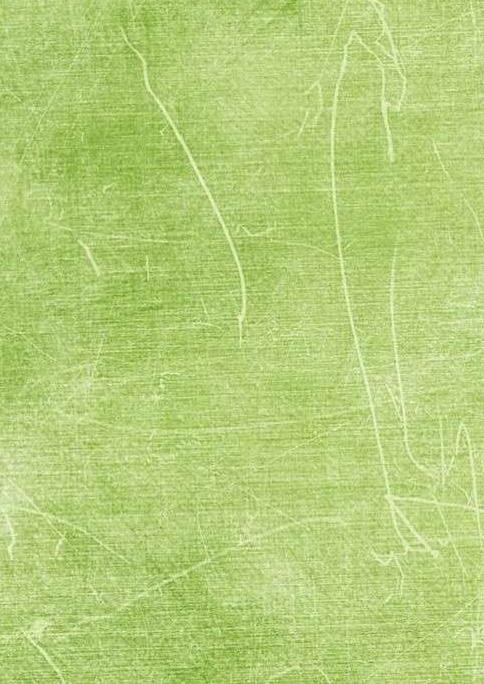
I have made peace with romance.
How many people hold the belief that Ancient Greece and Rome were queer utopias? How many people think that being trans is a new fad? How many people think queer history started with Stonewall?
Yet, almost none of this is true.
While Queer identities did exist in Ancient Greece, the accepted context for gay relationships was within a system that enabled young boys of wealthy families to gain education and political standing. Each boy would be assigned a mentor, their erastes. The esrastes was the active partner in the exchange, and the eromenos was the passive partner. In exchange for sex and relationship, the eromenos would receive an education in the law, politics, and rhetoric. Over time, their personal political power would develop. Many Athenian politician’s and philosopher’s careers began as an eromenos to a public figure.
However, homosexuality in Ancient Greece and by extension Ancient Rome, was only acceptable for the erastes – the active lover in the relationship. The eromenos took the passive role of a woman in the sexual relationship, and this was what warranted societal distaste. When an important figure was rumoured to be in a pederastic relationship, it was important to figure out who was the active, the erastes, and who was the passive – the eromenos. It was rumoured that Alexander the Great and his general Hephaestion were in a relationship; Alexander was perceived to be the erastes, and so his reputation stayed intact. In contrast, it was rumoured that Julius Caesar had had an affair with King Nicomedes of Bithynia. The contemporary author Suetonius had a field day with this rumour, writing mocking verses about Nicomedes ‘mastering’ Caesar. The implication that Caesar was the eromenos was clear and gained him the nickname “Queen of Bithynia.” Male homosexuality in the Ancient Mediterranean was more complicated than modern sources often portray.

Queer women also existed in the ancient Mediterranean. Many of the words we use to describe women that love women come from this period. Sappho, the poet who sung of her love for women, gives us ‘sapphic,’ a descriptor for when lesbian or bisexual does not fit. The island of her birth, Lesbos, becomes ‘lesbian’ – originally meaning a resident of Lesbos, and now the popularly accepted term for women who date women.
Tracking trans people throughout western history has been fraught. The concept of transgenderism was developed in Europe in the early 20th century, and it is important to acknowledge that prior to now, people likely had different understandings of gender than we do in the 21st century. Prominent trans historical figures include Dr James Barry, a British trans man, the Public Universal Friend, an American who refused the use of gendered pronouns, and John/Eleanor Rykener, a person brought before the London courts in 1395 under the suspicion of sodomy and cross dressing. Lili Elbe was the first trans woman to receive a uterus transplant, performed by Magnus Hirschfield. Hirschfield’s Institute for the Science of Sexuality was forcibly closed by the Nazi Party upon their rise to power in 1933. Most photos of Nazi book burnings were taken during this incident – you can literally see trans history going up in smoke. We cannot also forget Marsha P Johnson, Silvia Rivera, and Miss Major – trans women involved in the Stonewall Riots and the gay rights campaigns of the 1970s. There were likely many more trans people in history. Fortunately for them but unfortunately for us, their stories have been lost to time. To exist as a trans person within history is to be outed and microscopically examined. We owe our predecessors their silence and privacy. Sadly, there has never been an era that could ever be classed as a trans utopia.
While studying queer history, there is also the issue of language and identification. We simply don’t know how people in the past identified. Today, we have hundreds of words to explain our identities. Someone in the 1770’s would not have had these words. We will never know if prominent gender nonconforming figures would have identified as trans if they had this language. For example, someone in the Middle Ages would view their sexuality as the acts they commit, not the identity that allows them to commit these acts. In Ancient Greece, only one partner of a gay male relationship would face societal distaste. There were no words for homosexual in the stone age. Queer identities have always existed, but the past is not a queer utopia, and we must look carefully to find our historical community.
When our past is presented as a queer utopia, we do ourselves a real injustice. We ignore the real struggles of our predecessors, and we lose valuable context for where we are now. It is sad and angering that queer identities have never truly been accepted throughout most of European history, but we can hold pride in our support for each other. People are actively trying to suppress us, vilify us, and even to legislate us out of existence. Trans rights are in danger in many countries throughout the world. The recent visit of a prominent TERF shows that Australia is not safe from transphobia, homophobia, and queerphobia in general. Yet, despite the slings and arrows that queerphobic societies and lawmakers throw at us, we have persisted for thousands of years. We rebel. We make the world a better place through our existence. In this age of information and the internet archive, we have the chance to make our own queer history more accessible to future generations than ever before. Let’s not misrepresent our past to our future.
Frogs, as we all know, are gay icons. The adorably cottagecore imagery of the chubby cartoon frog is inescapable. In 2015, professional conspiracy theorist and alt-right American fake-news spreader, Alex Jones, yelled the iconic phrase ‘I don’t like ’em putting chemicals in the water that turn the freakin’ frogs gay!’. So turn a frog gay today by embroidering a Pride Froggy.
You will need:
4 inch/10cm embroidery hoop
Approx. 13cm x 13cm square of cotton fabric (repurposing an old white/cream sheet can be a cheap way to get hold of fabric)
Embroidery thread

for the frog – green, and optional light green, light pink and black

for the pride flag – red, orange, yellow, green (use your frog green), dark blue, purple for the trans flag – light blue, light pink, white Embroidery needle

Scissors
Tracing pen (FriXion erasable pens are my favourite because they disappear when ironed)
Embroideryskillsneeded: backstitch, and optional French knots (YouTube is your friend when learning embroidery stitches)

1. Pick your pride flags. The flags Froggy is holding are completely up to you. I recommend the ones with straight lines if you’re a beginner, but the pride is your oyster! Keep your choices in mind when purchasing thread colours as the colours I’ve suggested are for the pride flag and trans flag.
2. Buy your supplies! I recommend a visit to the near constant sales of Lincraft and Spotlight for DMC brand embroidery threads. If this is outside your price range, starter packs of embroidery thread come with all the colours you should need for this project. Or use some of your flag colours for Froggy to keep thread purchasing down!
3. Trace the pattern (page 64) onto your piece of fabric. There are plenty of tutorials online for the easiest ways to do this. Use the example image to work out which colours will go where.
4. Ensure your fabric is taught in the embroidery hoop and you’re ready to start stitching!
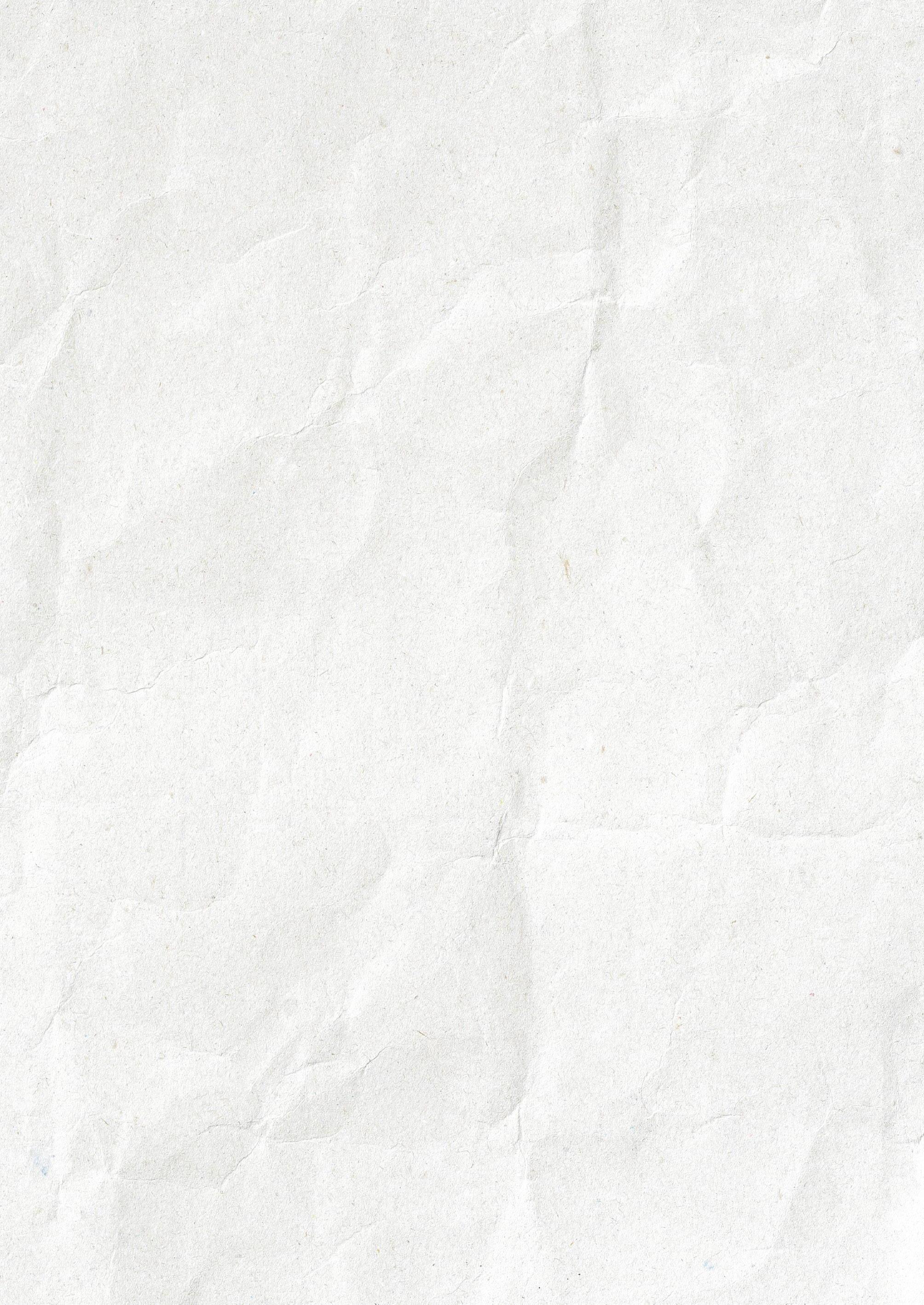
5. Backstitch your Froggy body, then the Froggy stomach.
6. Backstitch the flag sticks in Froggy’s hands.

7. Starting at the top of the flags, use 3 backstitches for each colour in the pride flag and the trans flag.
8. Finally, give Froggy some personality. Separate the thread you’re using for the eyes and mouth so that you’re only working with 2 strands. Use French knots for the eyes and a backstitch for the mouth.
9. Finish Froggy off with single stitches under the eyes for blush.
10. Take Froggy off the hoop and iron the reverse side of the fabric (if you used heat erase pens) or wash your embroidery (if you used a pencil, look up a tutorial for this). Finish your embroidery however you want (YouTube is your friend again…)! You can frame it, hot glue a back on the hoop, or gather the excess fabric at the back.
11. Display Froggy, and send us a picture if you’ve made your own!
1. 54
2. Tim Curry
3. False! They are a method of STI protection.
4. Jughead Jones (shame on you Roberto!)
5. 12 Sept 2017 – 7 Nov 2017
6. To represent people of colour (POC), as they have been excluded from the movement despite being the driving force
7. Dorothy Gale (Judy Garland) from The Wizard of Oz
8. pink monkey bird
9. Law lecturer (Bonus point: University of Adelaide)
10. Alice Oseman
11. *vomits* J.K. Rowling
12. Spankie Jackzon
13. If you’re reading this, the answer is obviously yes.
14. MARY’S POPPIN
15. bros, hot, five, apart, gay
16. Obviously false! Babe, if you genuinely thought otherwise please get some help.
17. 10 (feeling old yet?)
18. As a feminist, she desired “a deeper debate about the role of marriage”, having acted under the mistaken belief that “this was the moment” for it.
19. Hephaestion
20. Are you kidding?
1000% smash (and I don’t mean in her ‘Vanessa’ form either).















